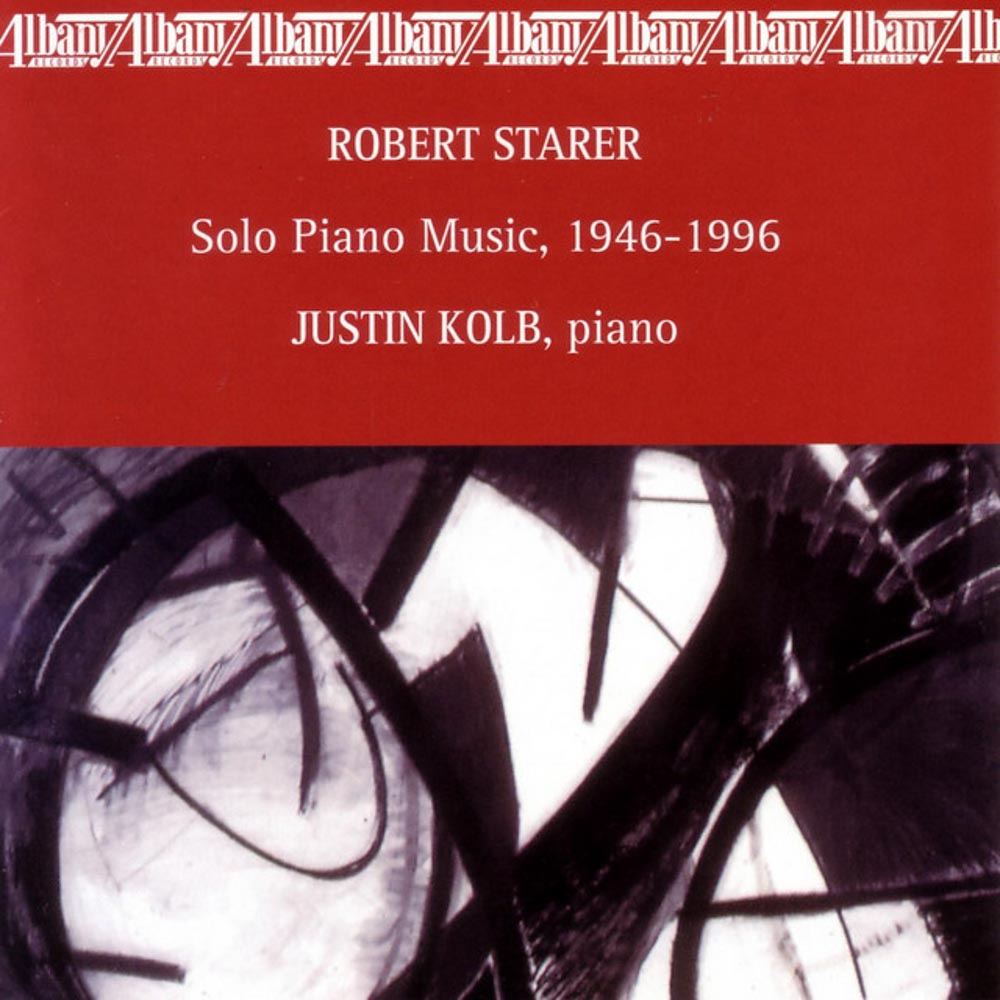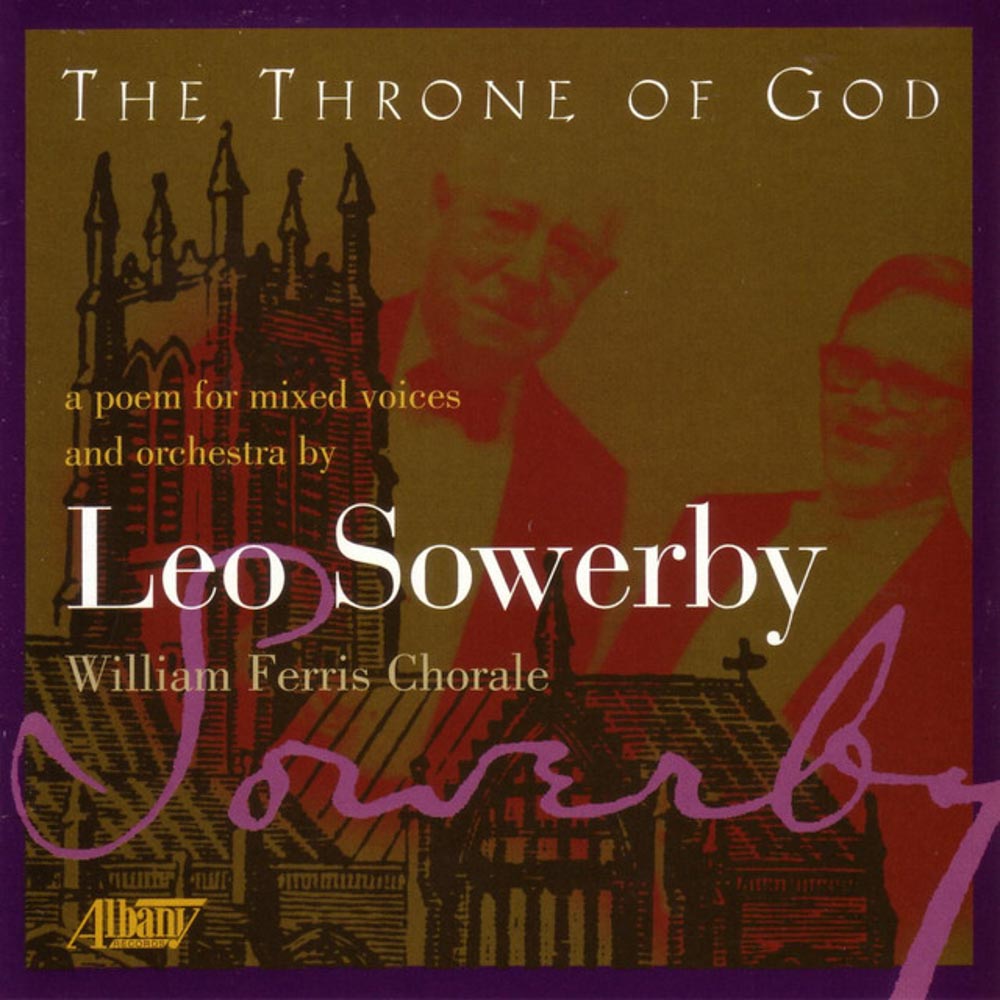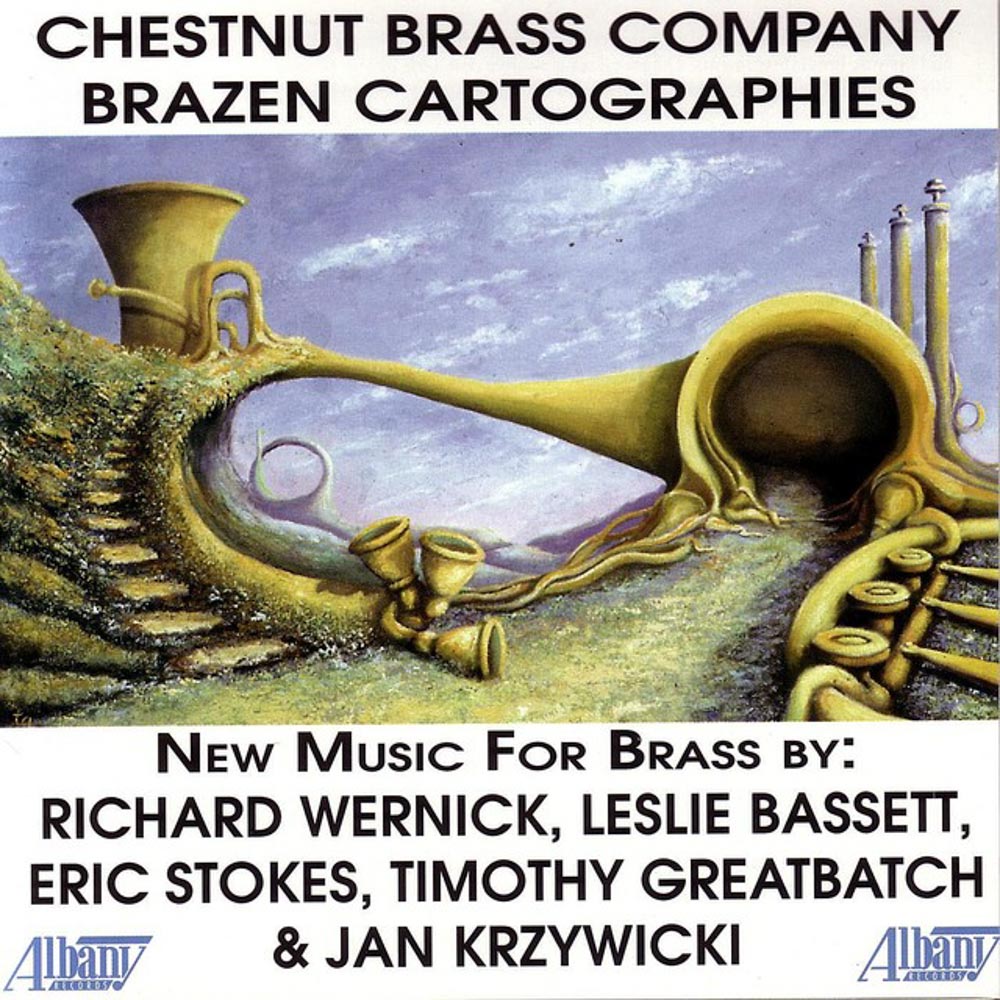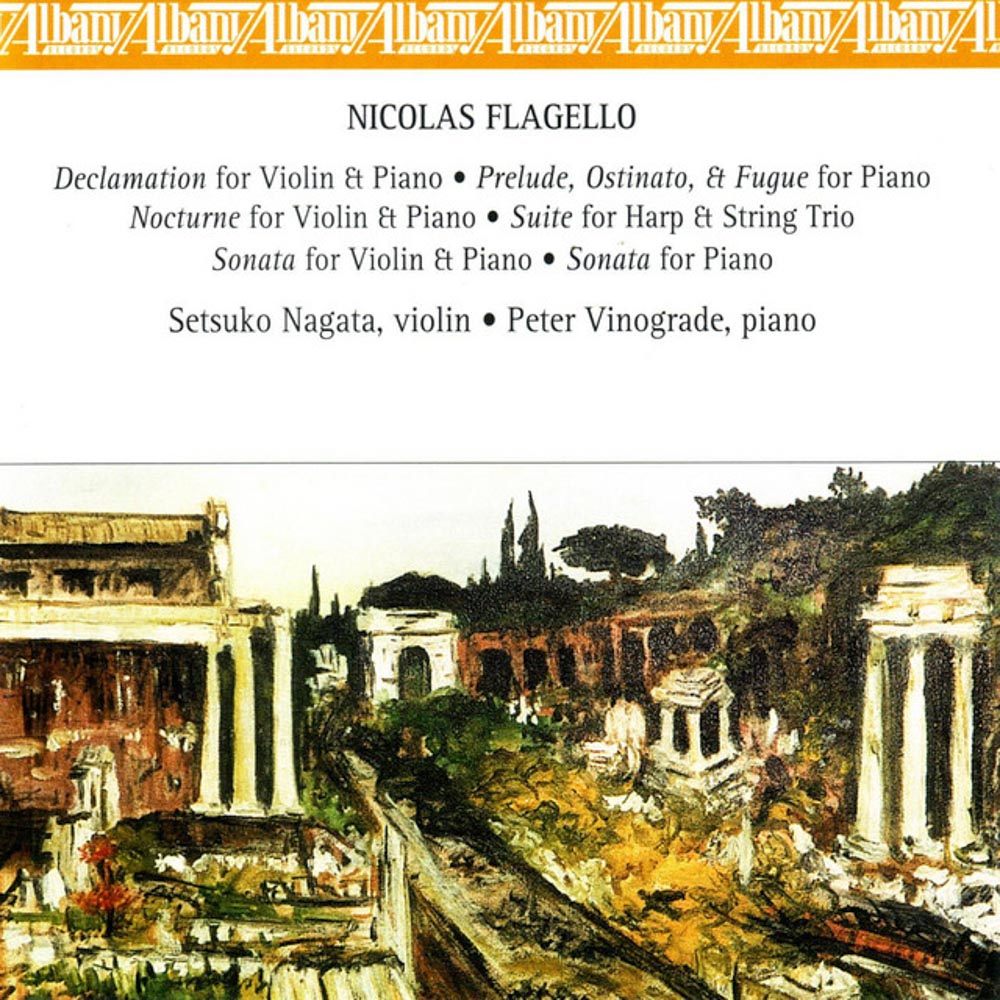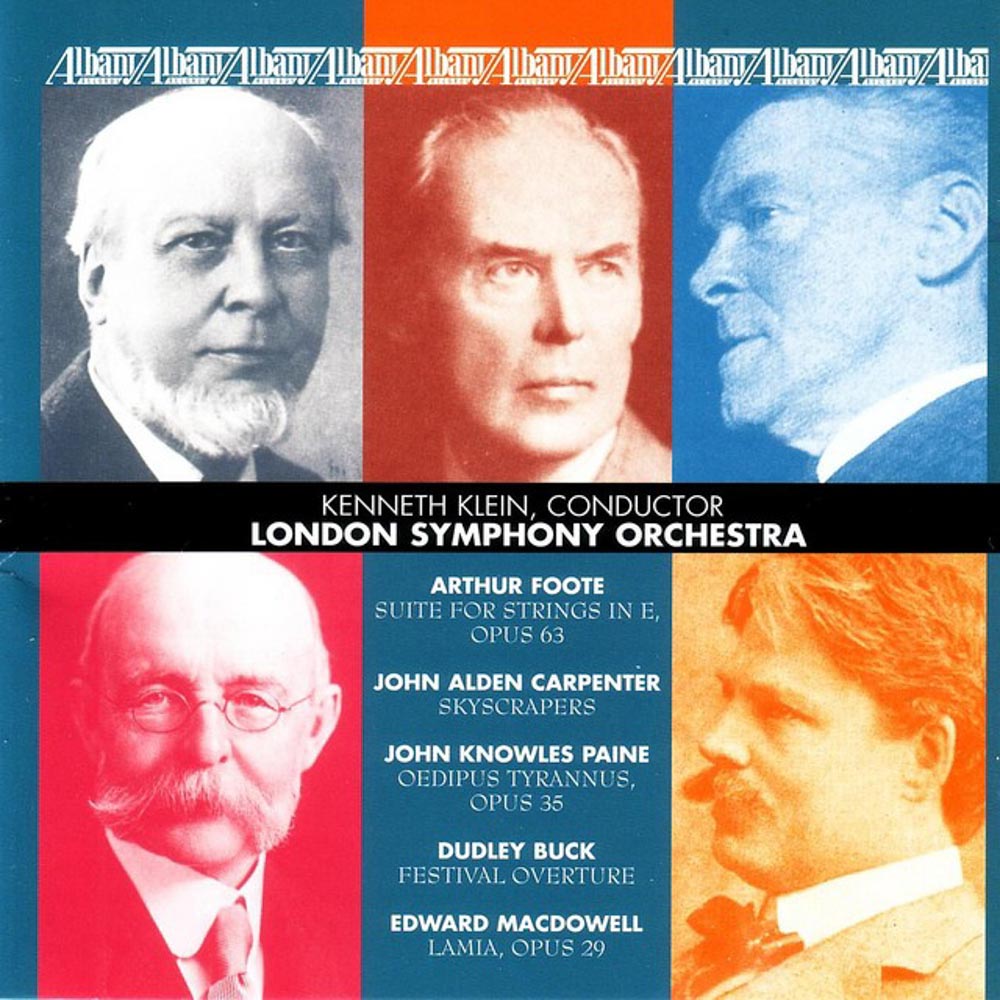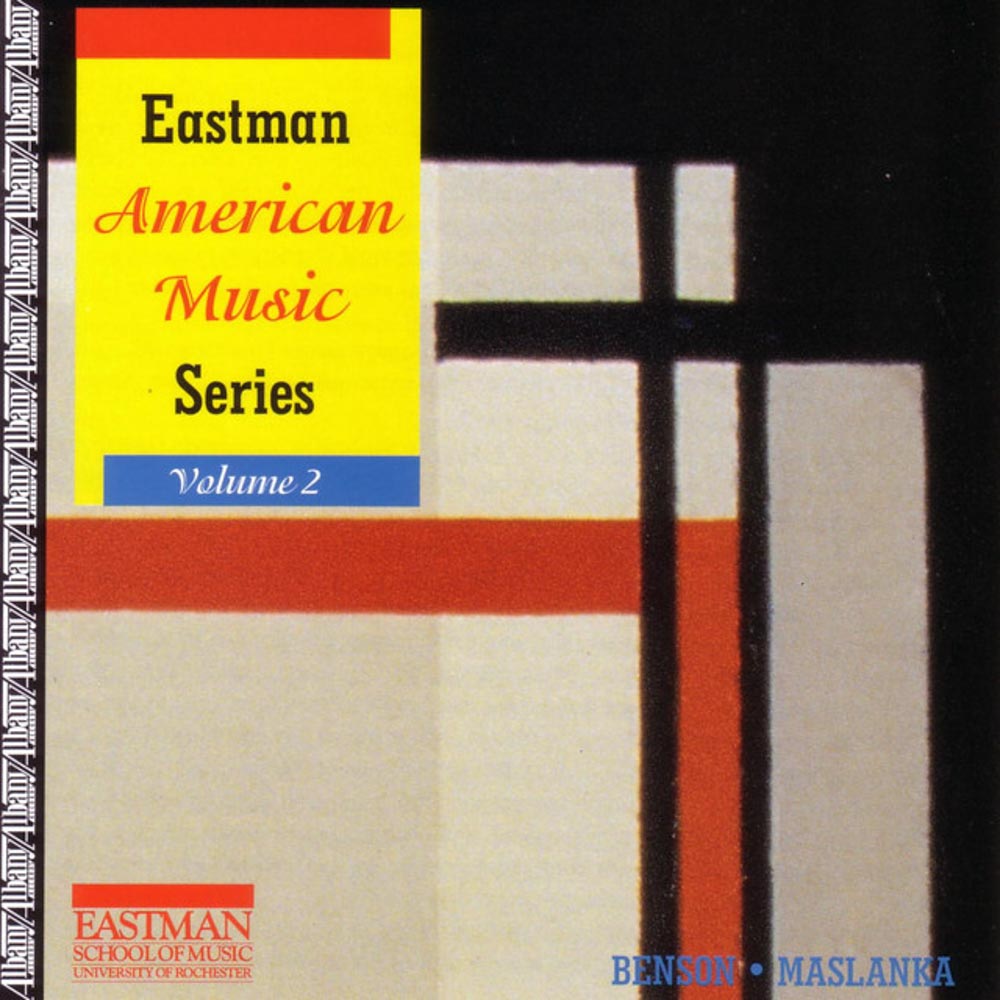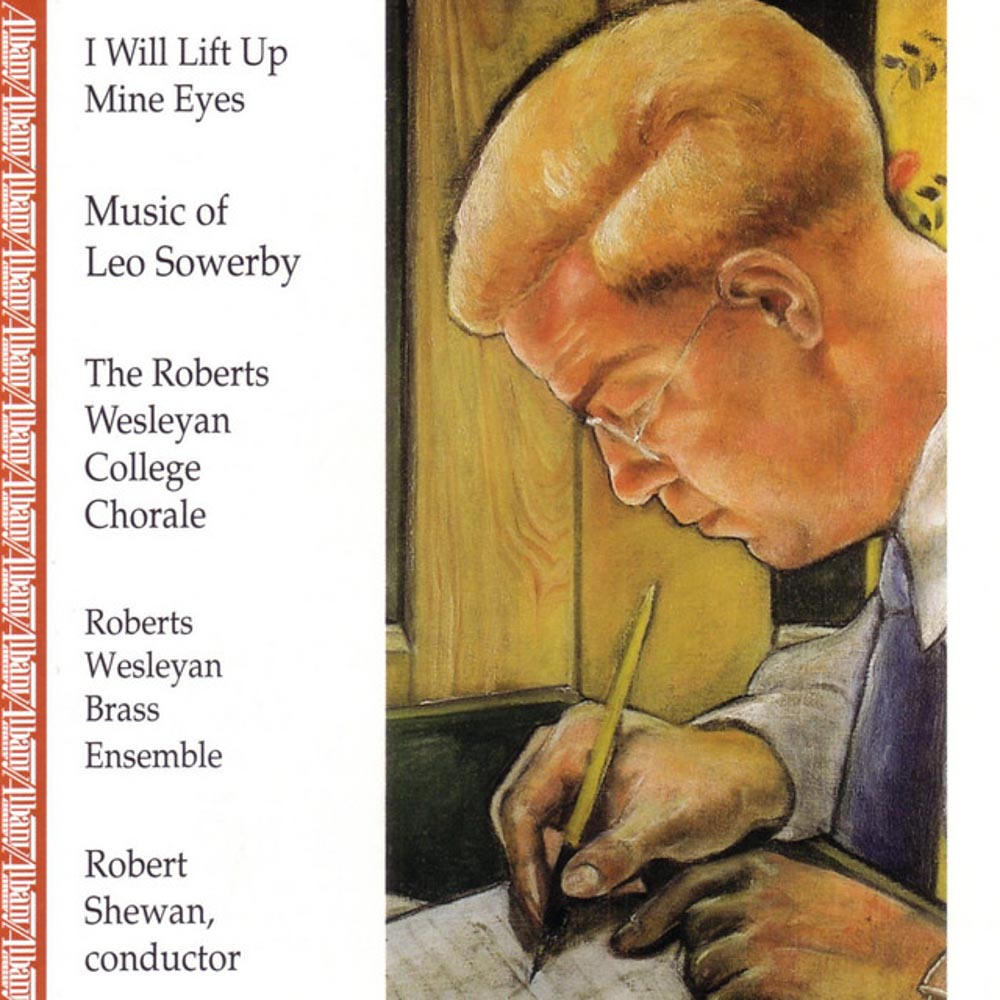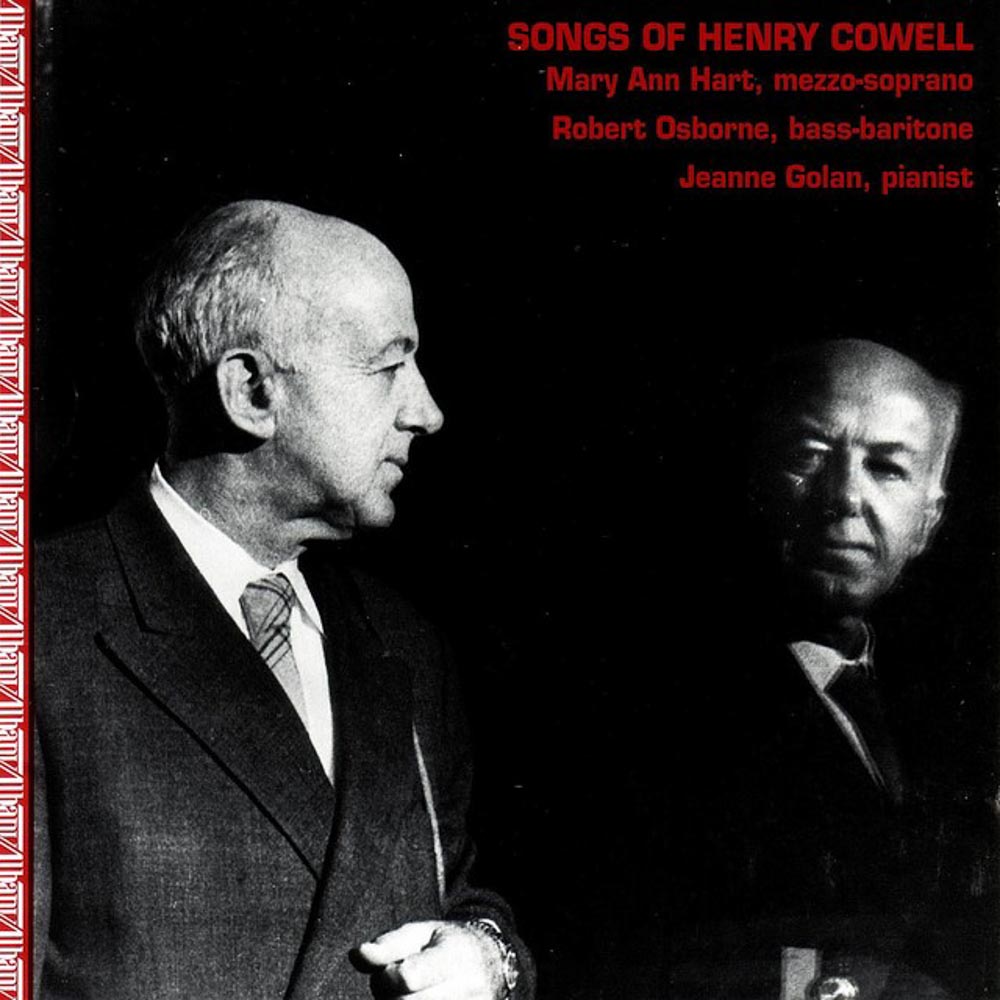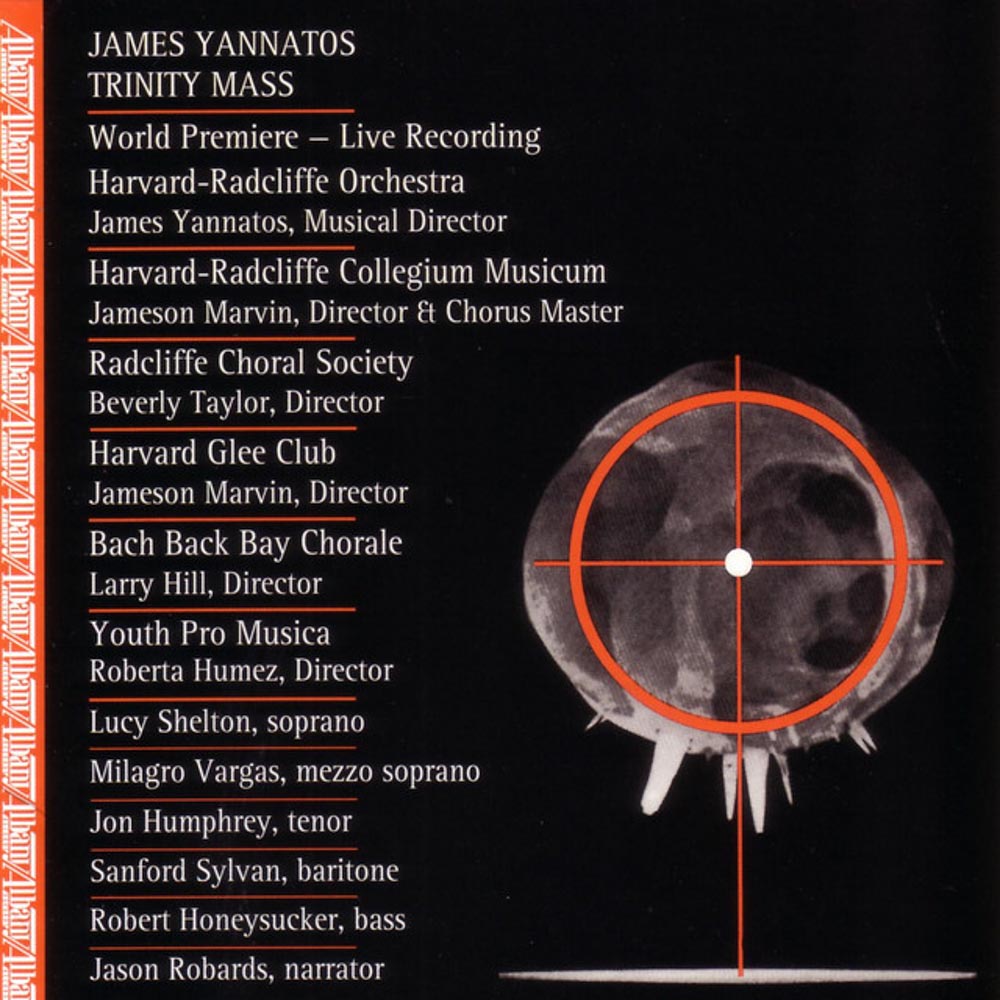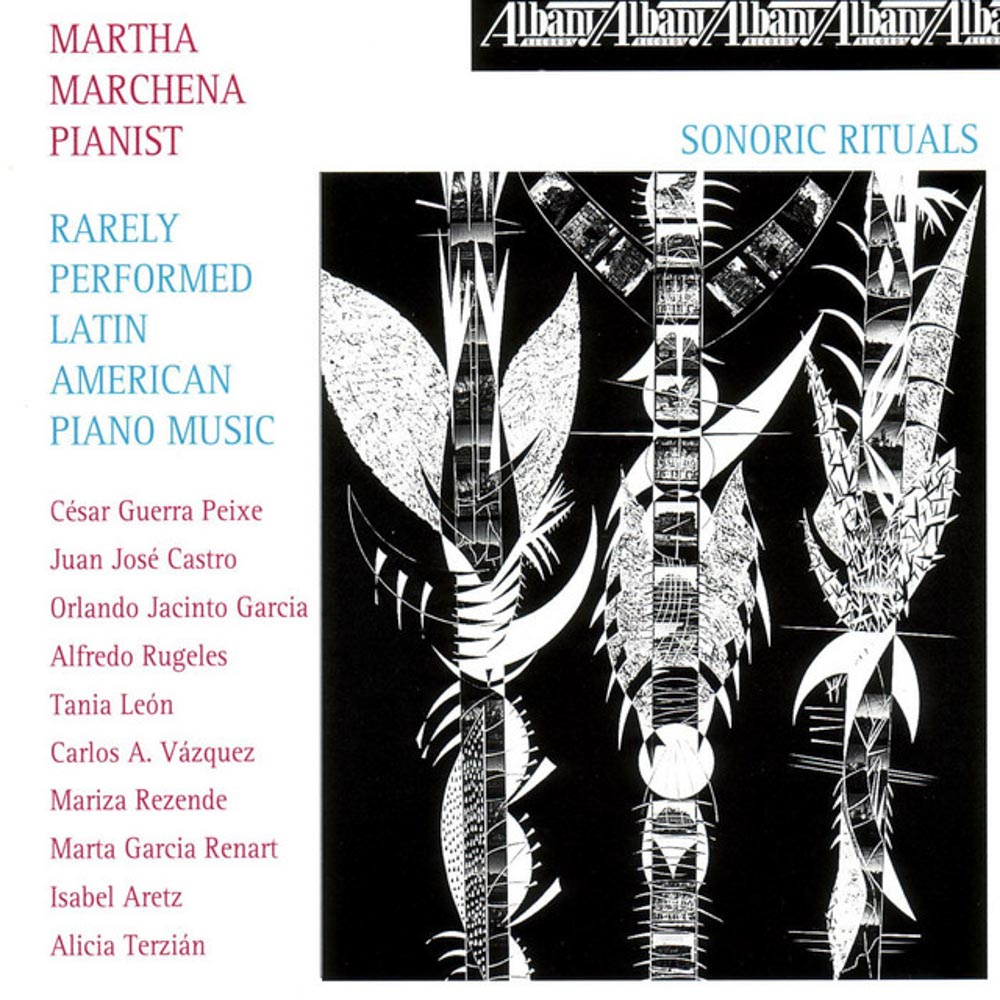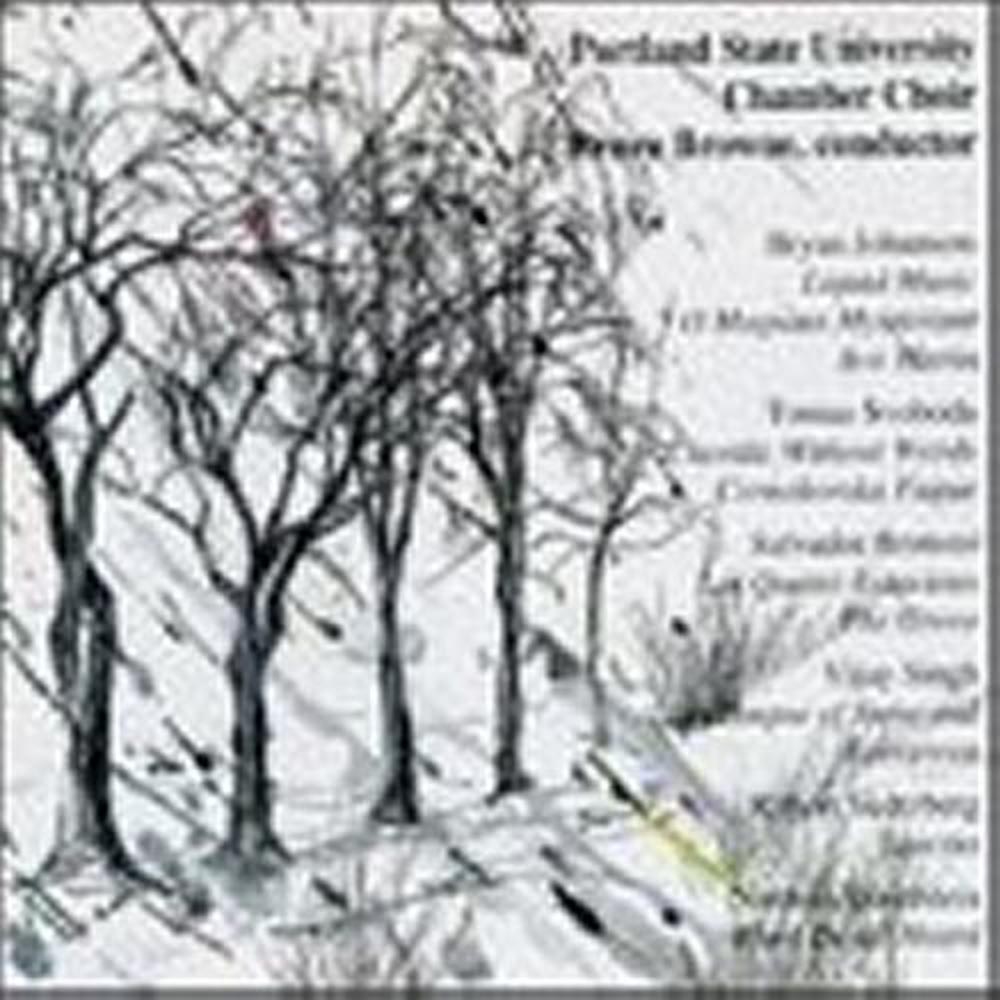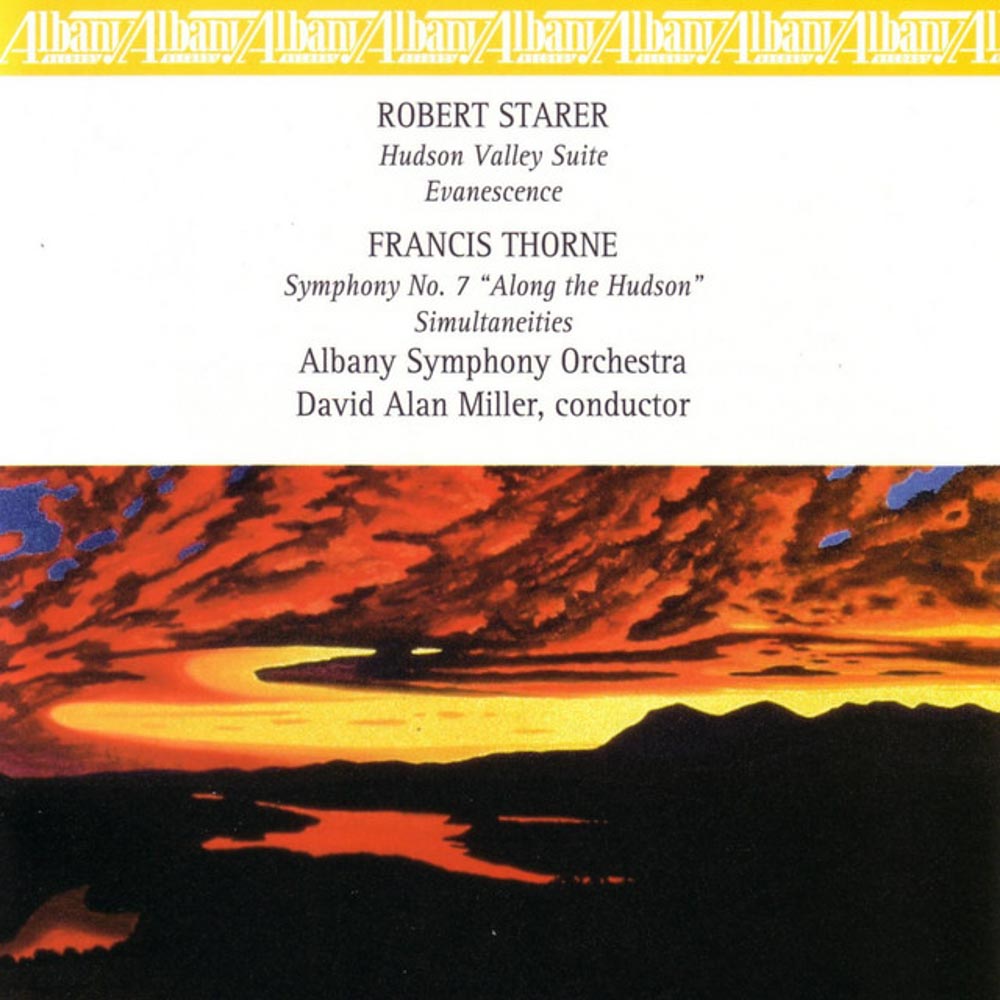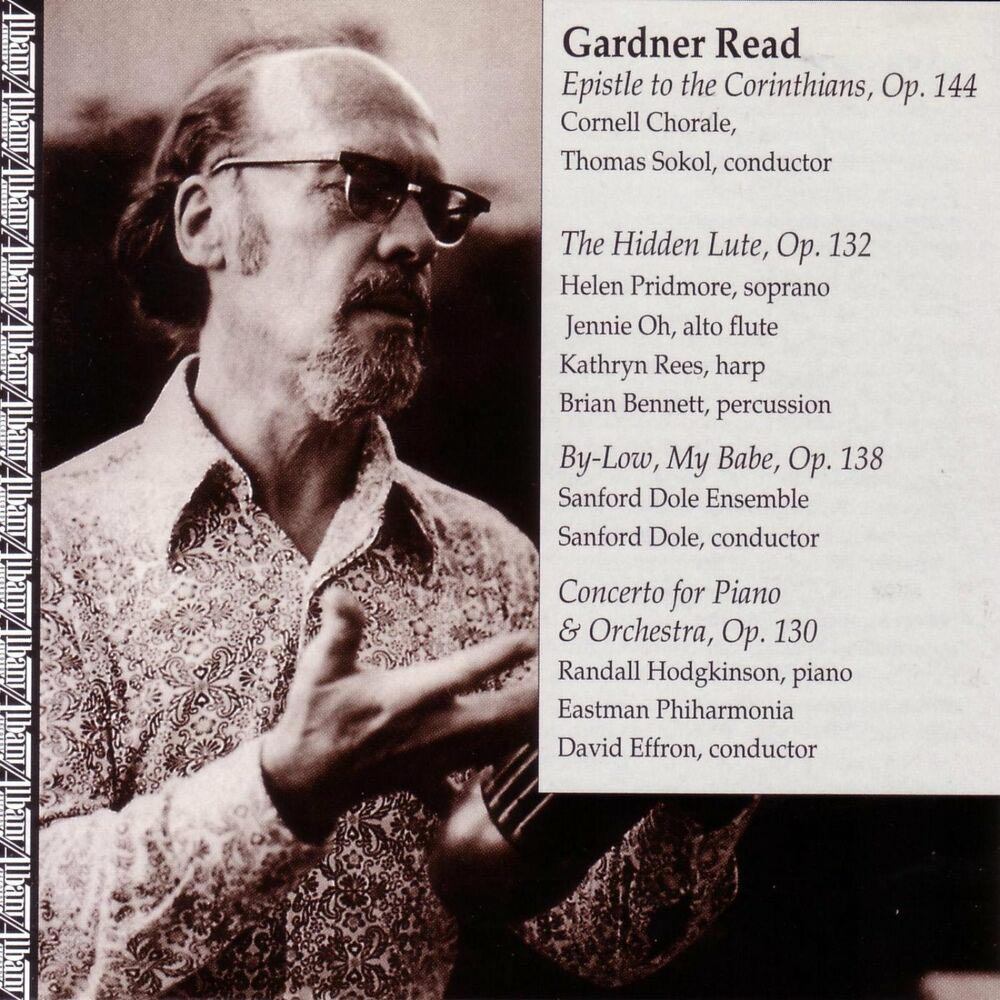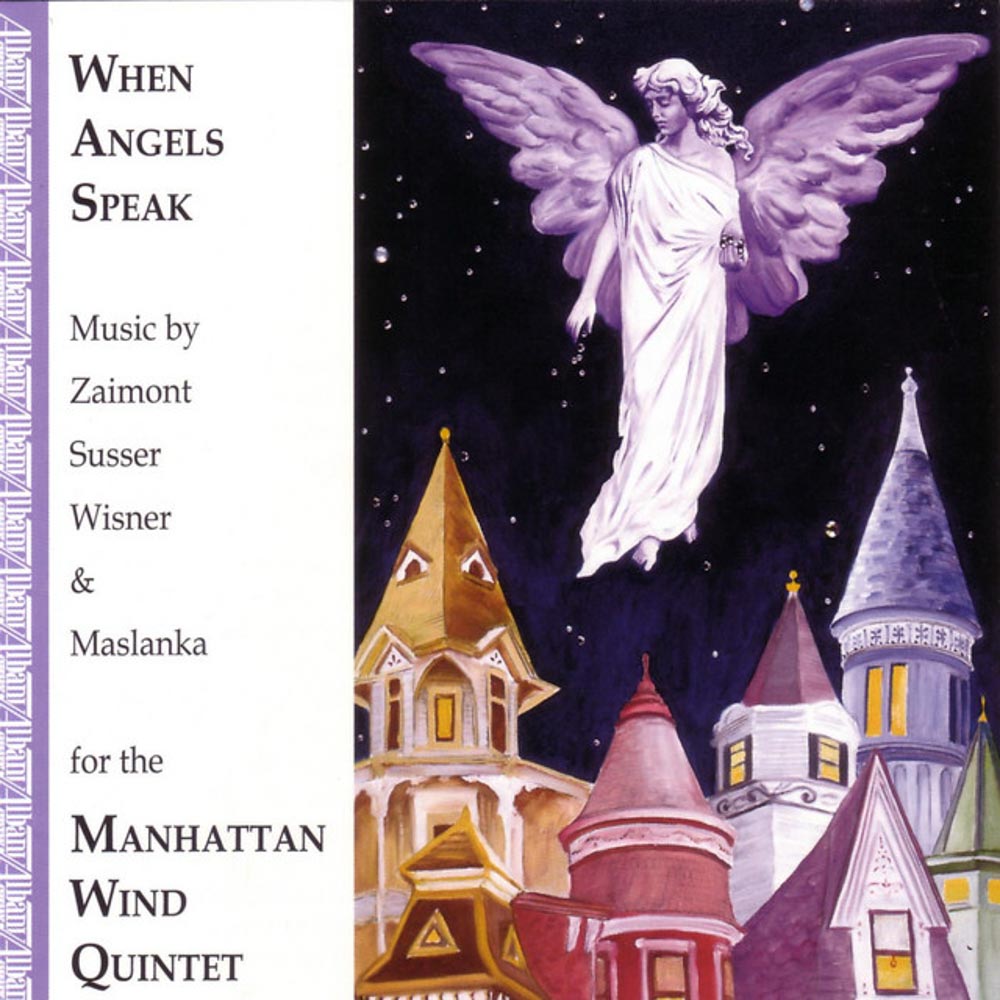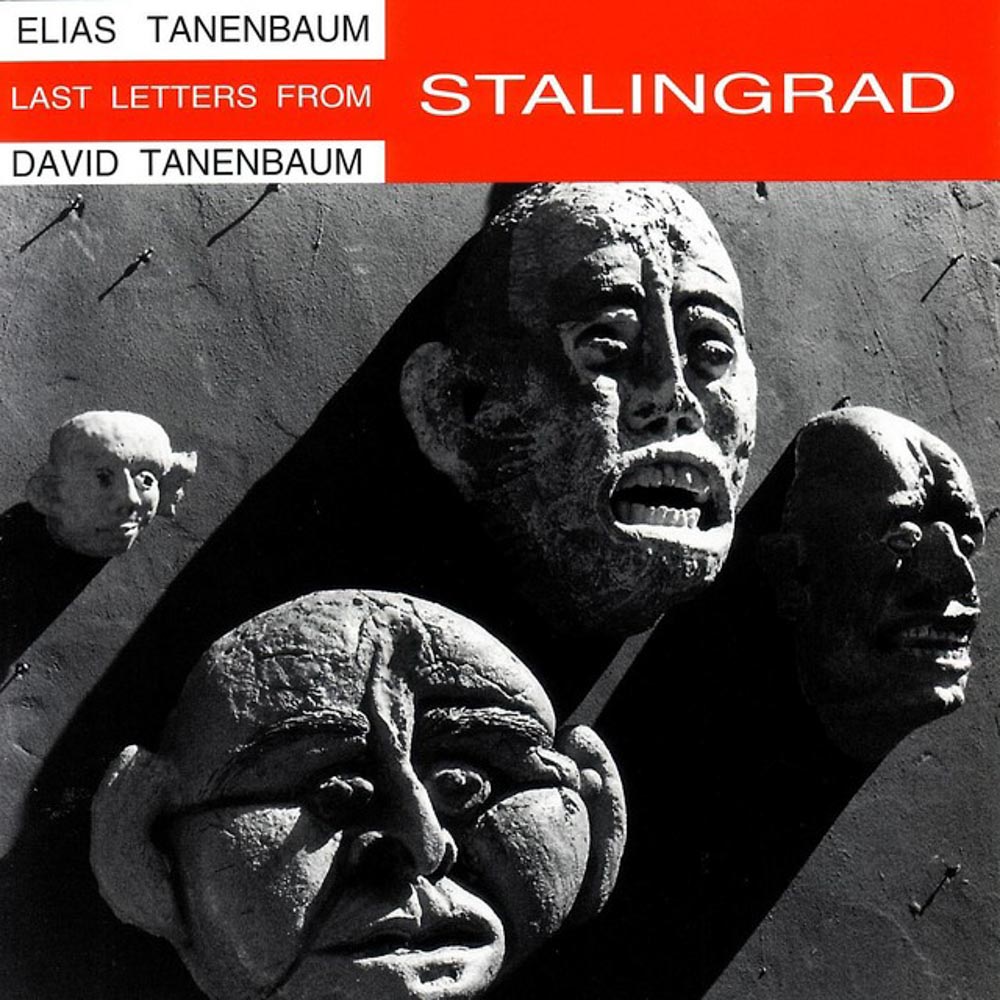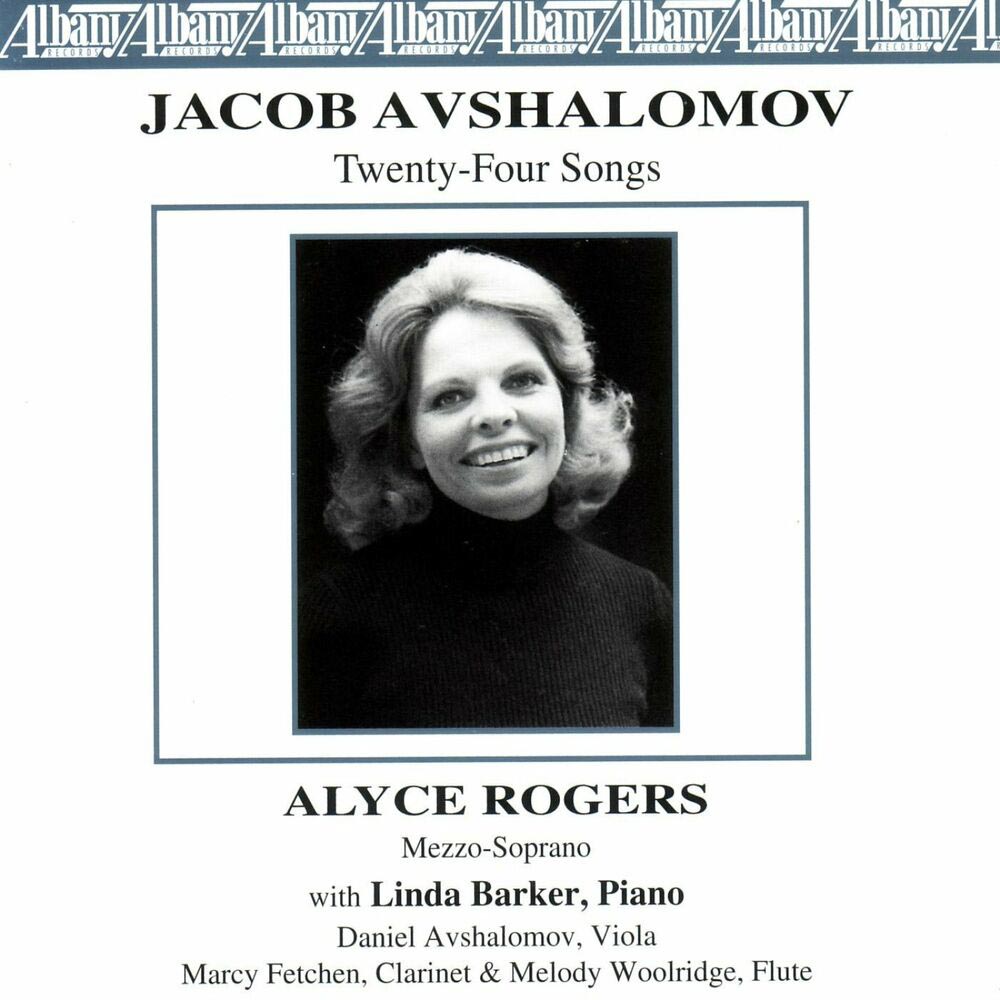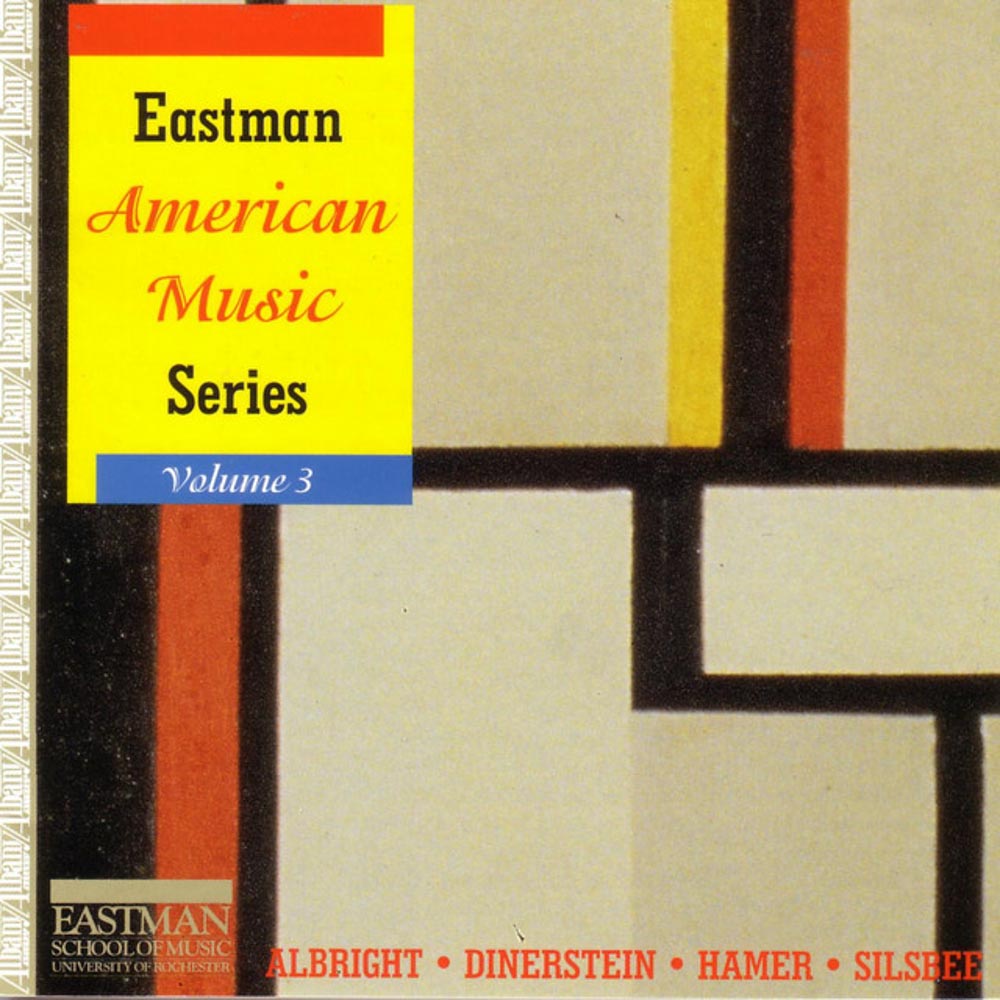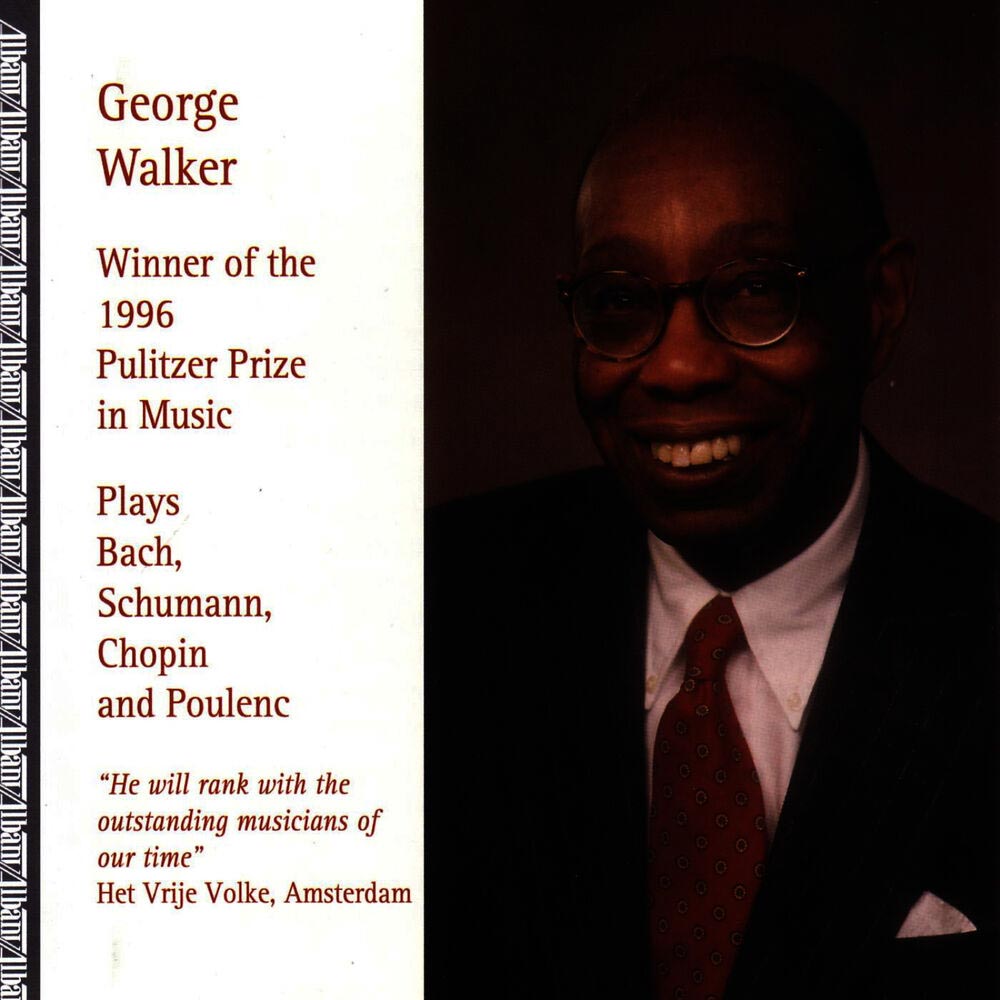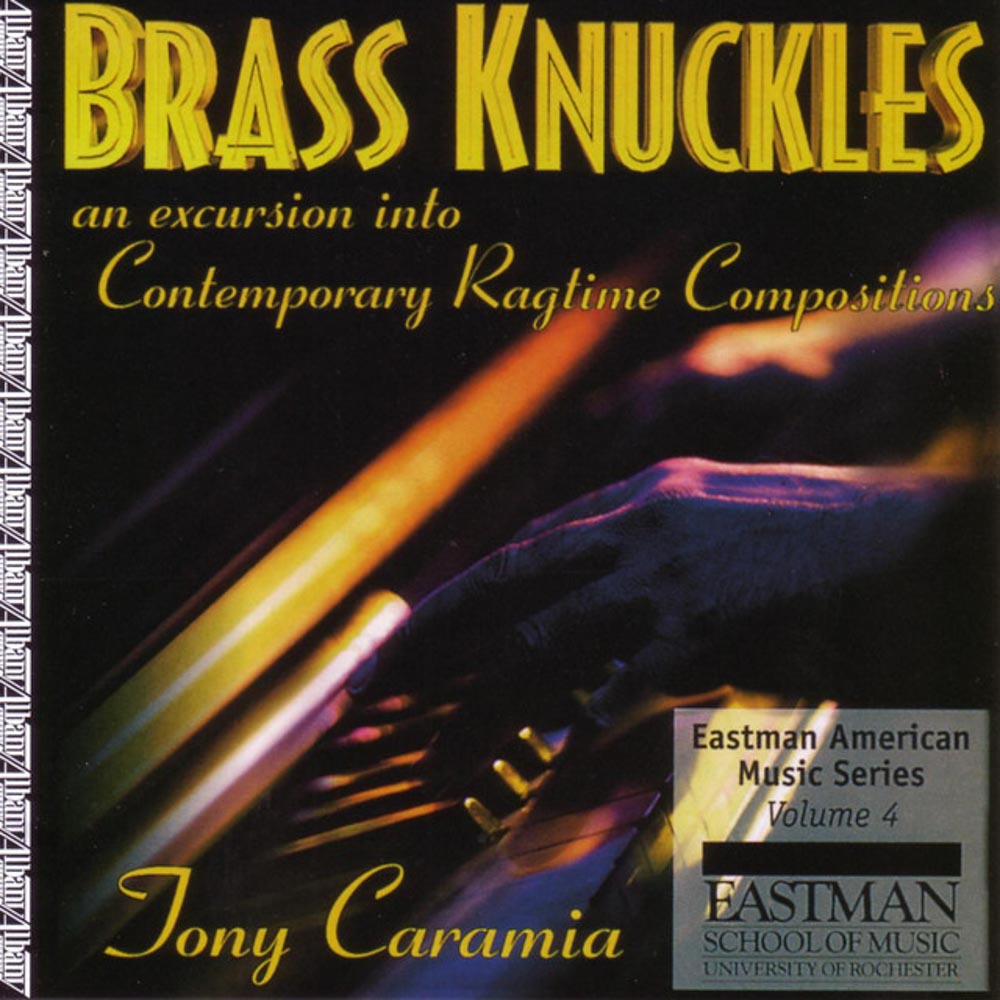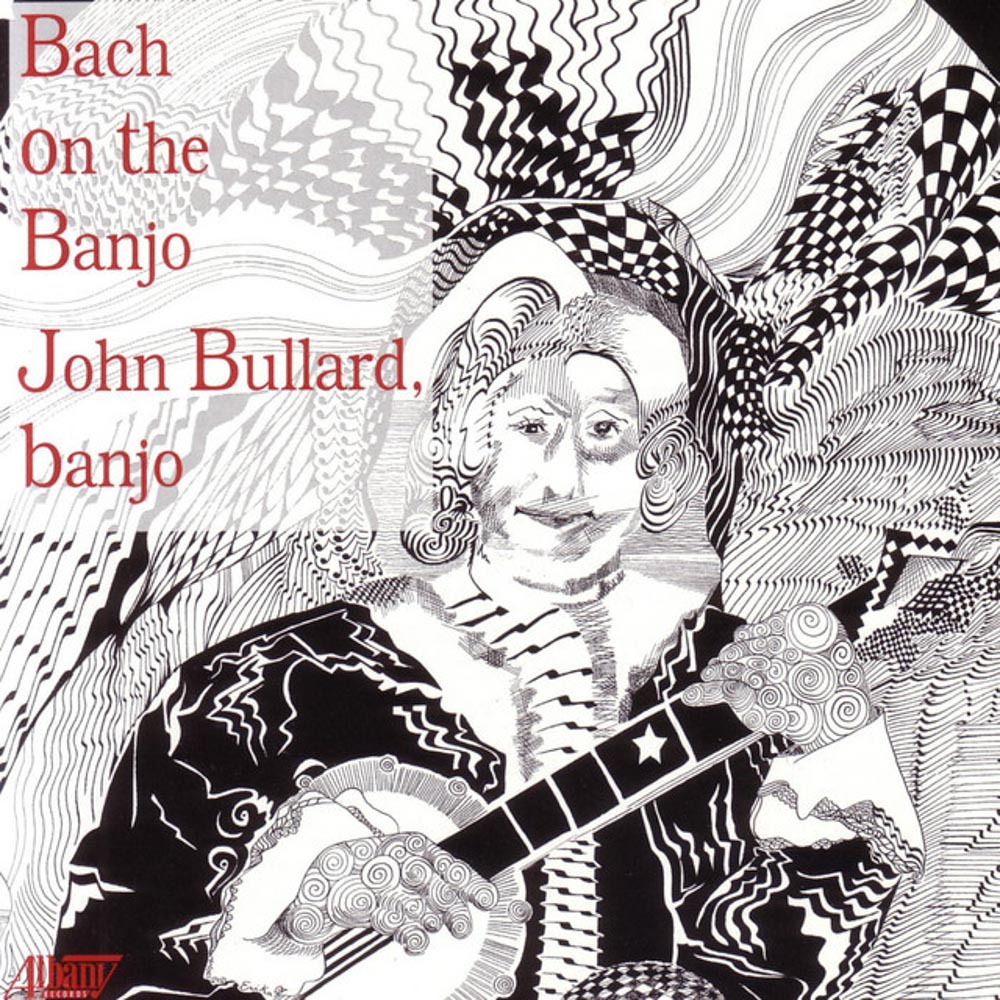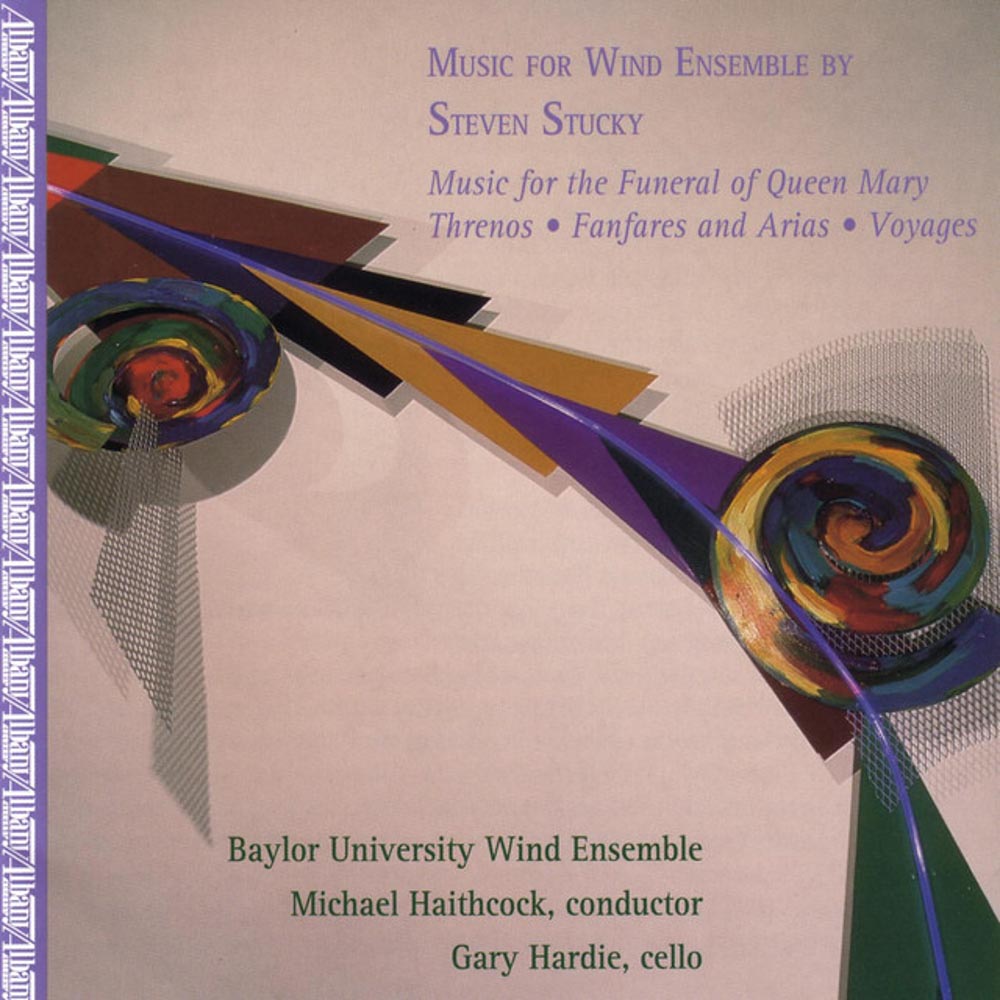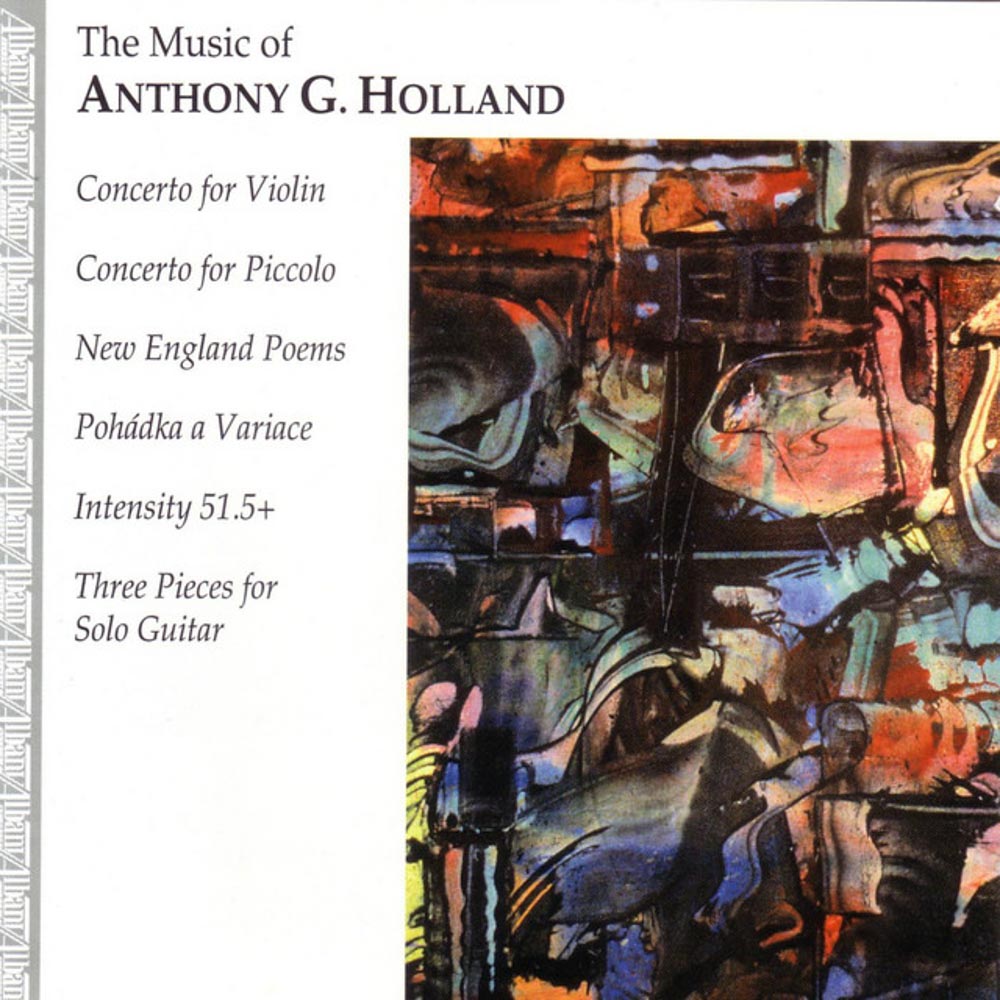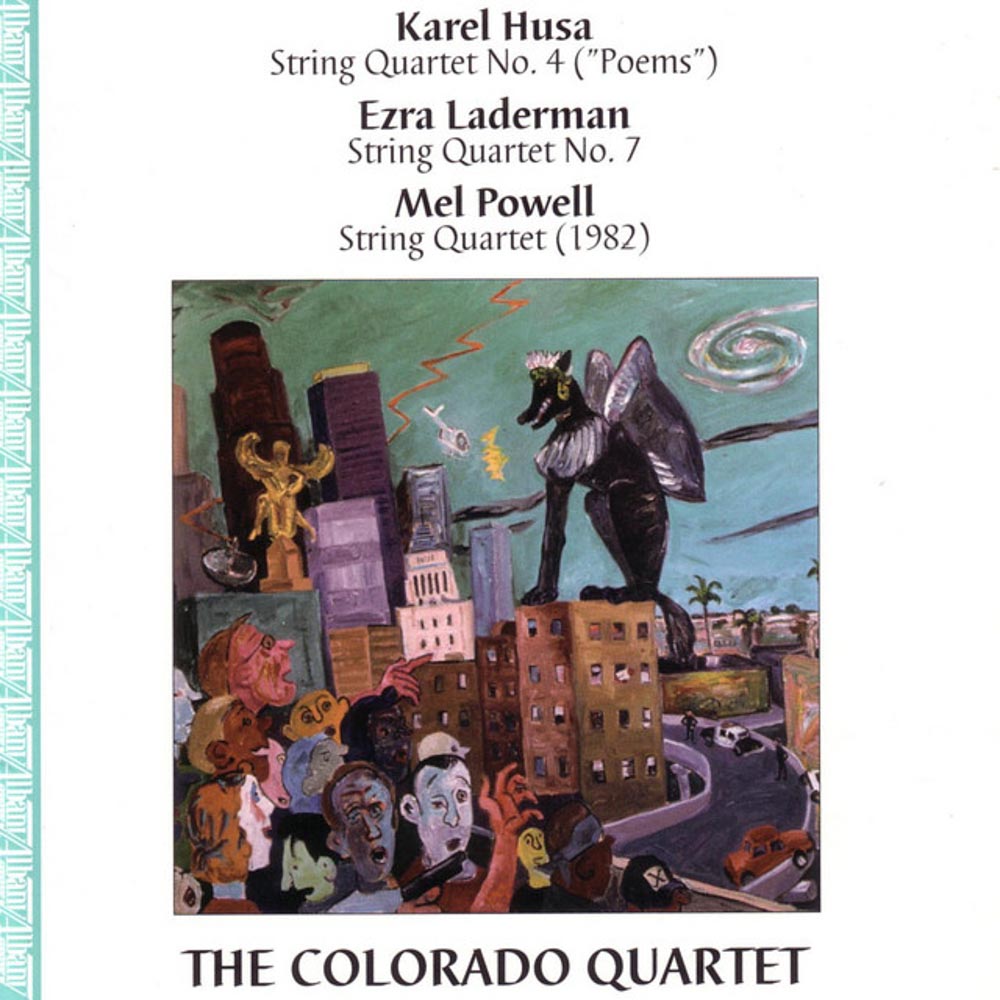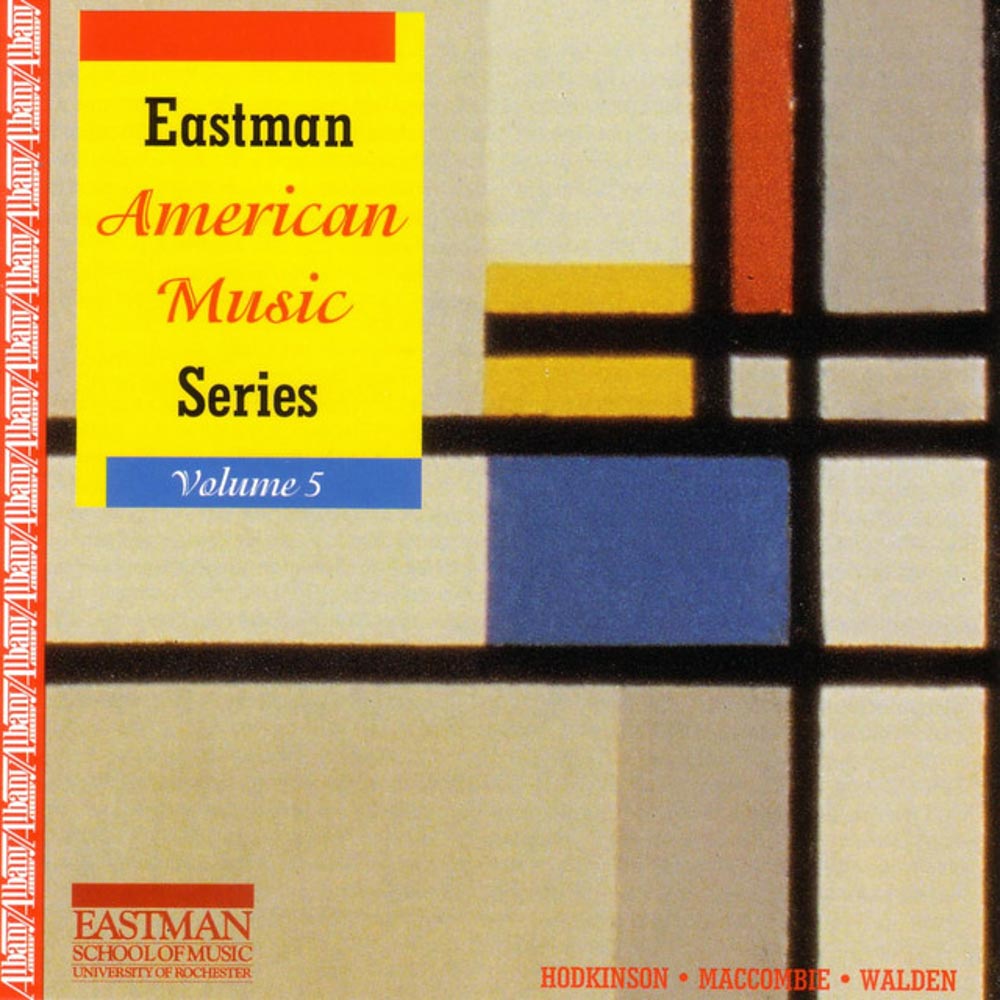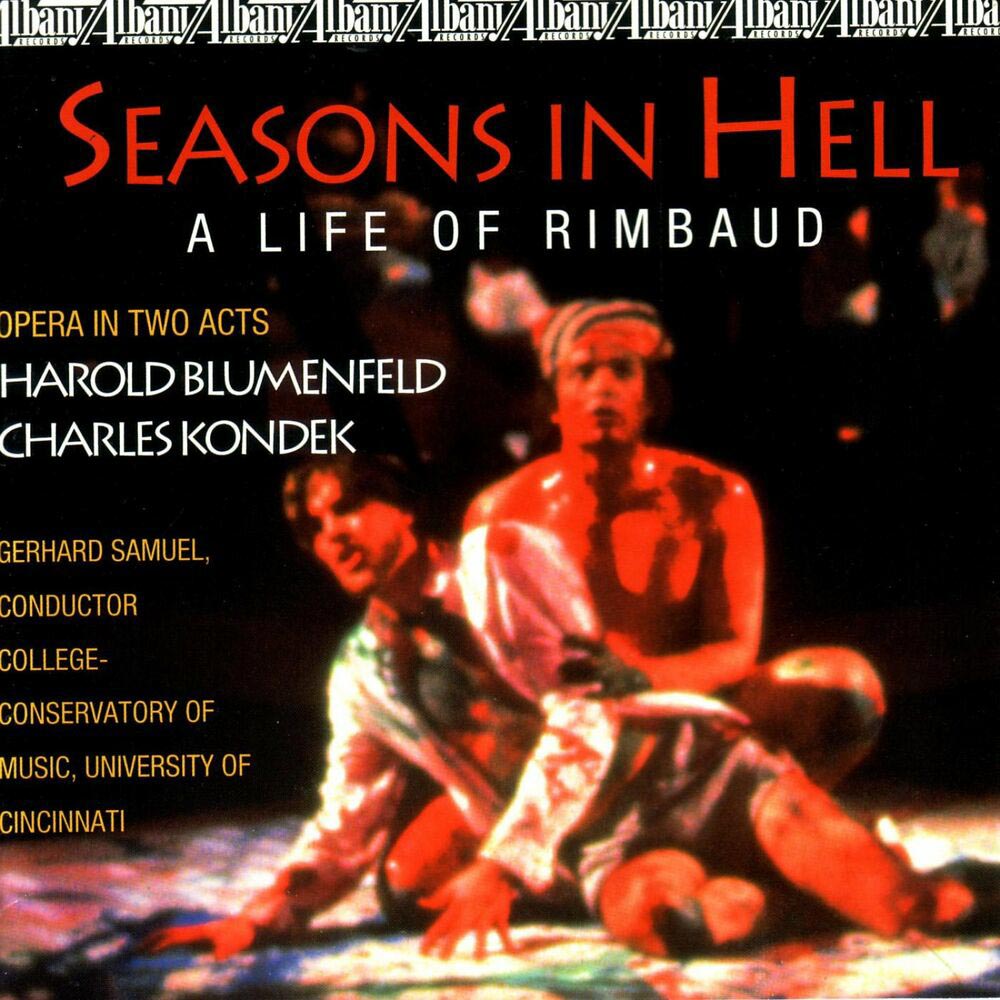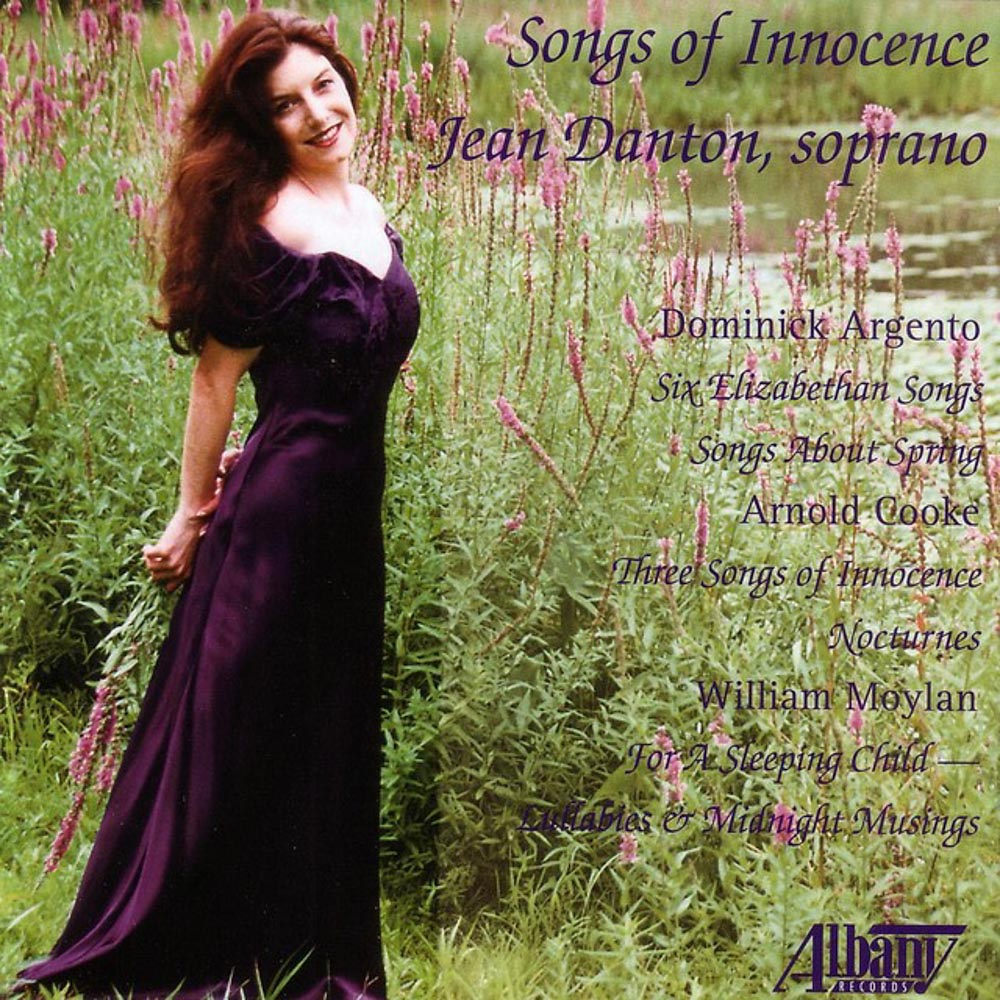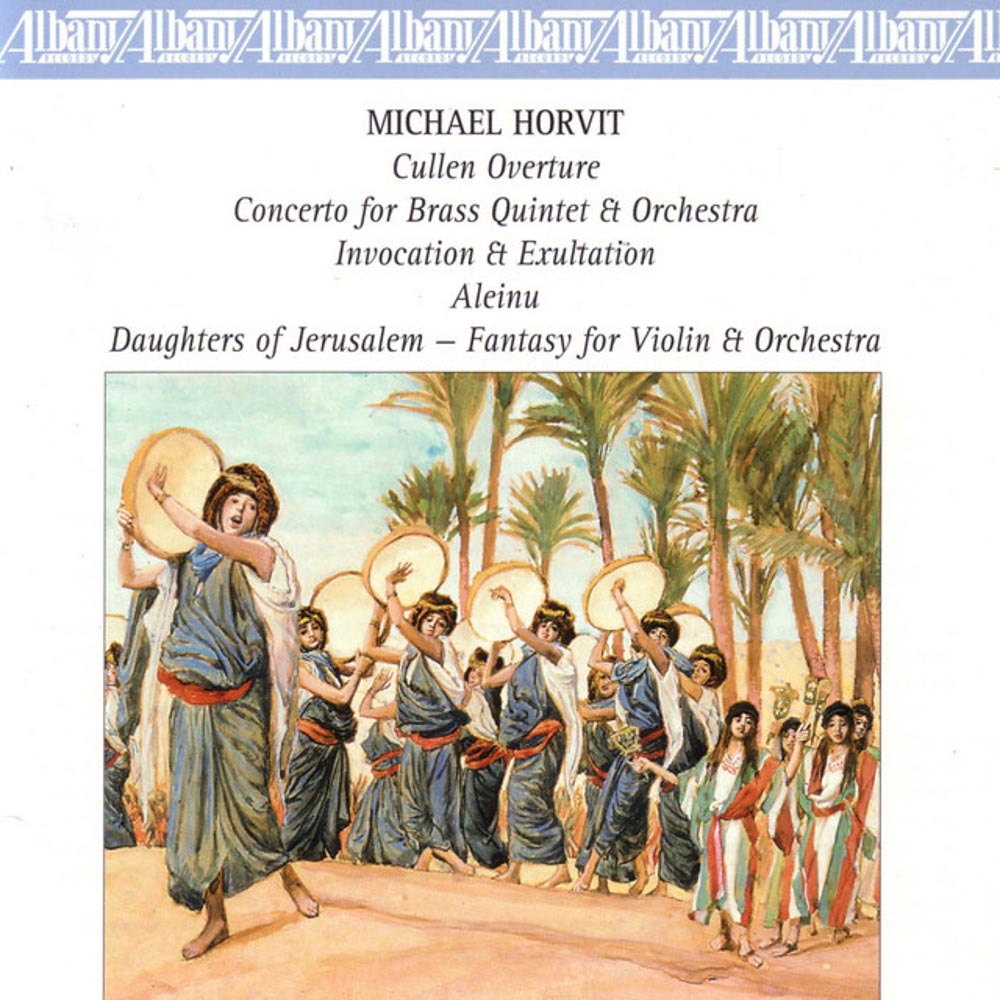Catalog #: TROY0228
Release Date: March 1, 1997InstrumentalA proponent of American music, pianist Justin Kolb frequently performs the music of Joan Tower, Tania Leon, Aaron Copland, Samuel Barber and Peter Schickele. He has performed premieres of music by Robert Starer, Paul Alan Levi and Jan Bach. His program of Starer's solo piano music in Weill Recital Hall at Carnegie Hall was hailed by the New York Times as a "Piano Recital Program with a difference." Kolb also performs much of the standard keyboard literature with an emphasis on Beethoven, Liszt and Alkan. The notes for this disc are written by the composer who has had a life-long love affair with the piano. Contemporary music lovers will find this program most appealing and refreshing.
Catalog #: TROY0231
Release Date: April 1, 1997InstrumentalMartin Herman composed his Arena in 1990-91. Herman has worked at IRCAM with Pierre Boulez and in Iannis Xenakis' studio. He is currently on the faculty of California State University, Long Beach, where he teaches music composition and theory and directs the Computer and Electronic Music Studio. Augusta Read Thomas' coolly austere Whites resulted from the composer's desire to make a sonic equivalent of a visual exploration of white. Stephen Jaffe composed his Impromptu in 1987. It is a short set of variations based on a bluesy pavanne and was composed for a 70th birthday concert in honor of George Rochberg. Jaffe is currently on the faculty of Duke University where he directs the concert series "encounters with the Music of Our Time." According to the composer Randall Woolf, the hard-driving Nobody Move "tries to find the common ground between the menace of the hard-core Hollywood villain and the fearless bravado of the virtuoso pianist, with the audience as helpless victim, too frightened to bat an eye." John Harbison won the Pulitzer Prize for Music in 1987. His Four Occasional Pieces were written over a ten year period between larger, more serious works. Today he holds an endowed professorship at the Massachusetts Institute of Technology. Robert Kyr's White Tigers is based on a legend found in Maxine Hong Kingston's novel "The Woman Warrior" in which a young girl learns the ways of a woman warrior in part by emulating a white tiger - the wildest, most mysterious beast in the jungle - and goes on to liberate her people from oppression.
Catalog #: TROY0232
Release Date: May 1, 1997ChoralThis disc features concert recordings of performances given between 1986 and 1995, including the historic 90th birth celebration "Remembering Leo" held on February 21, 1986. The Throne of God, Interlude, and God Mounts His Throne are all world premiere recordings (The Throne of God lasts over 45 minutes). William Ferris, a student and dear friend of Leo Sowerby writes: "Leo Sowerby is remembered today as America's foremost composer of Organ and liturgical music, but during the first part of the century he was among our most often performed symphonic composers. His intensely personal and highly individual style requires a long familiarity and sensitivity in performance, and when such care is expended, a compelling, powerful, daring and original music emerges. The Throne of God has proved to be the towering masterwork of Sowerby's mature period. Filled with brilliant choral and Orchestral writing, it is in many ways a perfect summation of the daring inventiveness and heartfelt sincerity found in Sowerby's previous compositions, both sacred and secular. After its premiere on November 18, 1957, Paul Hume, the music critic for the Washington Post wrote: "applause contrary to all tradition, shattered the sacred precincts of Washington Cathedral last night to honor a great living composer. Sowerby, a Pulitzer Prize winner, has given Washington Cathedral a worthy momento of its anniversary." The Throne of God is a huge work, certain to change people's impression of Sowerby and his music.
Catalog #: TROY0233
Release Date: March 1, 1997ChamberRichard Wernick was born in Boston and studied with teachers such as Irving Fine, Harold Shapero, Arthur Berger, Ernst Toch, Leon Kirchner, Boris Blacher and Aaron Copland. He taught at the State University of New York at Buffalo, the University of Chicago and in 1996 retired from the faculty of the University of Pennsylvania. In 1977, he won the Pulitzer Prize in music for "Visions of Terror and Wonder." His work on this disc was composed for the Chestnut Brass. Leslie Bassett was taught by Ross Lee Finney, Roberto Gerhard, Nadia Boulanger and Arthur Honegger. During World War II, he was a trombonist and arranger with Army bands in the United States, France and Germany. He is the Albert A. Stanley Distinguished University Professor Emeritus of Music at the University of Michigan. He also is a Pulitzer Prize winning composer for his Variations for Orchestra. His Brass Quintet on this disc was composed for the Chestnut Brass. Timothy Greatbatch studied music at the University of Pennsylvania with George Crumb, Richard Wernick and George Rochberg. He has also developed a career as a visual artist and is often commissioned to create murals or elaborate wall paintings for both residential and commercial settings. His music on this disc was also commissioned by the Chestnut Brass. Jan Krzywicki was born in Philadelphia and studied with Vincent Persichetti, Elliot Carter, Nadia Boulanger, and Darius Milhaud. Since 1987, he has been a member of the music theory department at Temple University. "Deploration" was composed for the Chestnut Brass. Eric Stokes studied with Dominick Argento and Paul Fetler, among others. From 1961-1988, he served as a Professor of Music at the University of Minnesota, where he founded the University's electronic music program in 1970 and the new music ensemble. He has composed more than 80 compositions including the music on this disc.
Catalog #: TROY0234
Release Date: May 1, 1997ChamberNicolas Flagello was one of the 20th century's leading exponents of traditional late-Romantic musical values. Without ever repudiating this aesthetic outlook, he forged a personal musical language and a distinctive body of work shaped by his own temperament and embodying his own perspective on life. As a composer, he held with unswerving conviction to a view of music as a personal medium for emotional and spiritual expression. This unfashionable view, together with his vehement rejection of the academic formalist that dominated musical composition for several decades after World War II, prevented him from winning acceptance from the reigning arbiters of taste for many years. However, gradually Flagello's works have begun to win enthusiastic advocacy, as his music is recorded and performed with increasing frequency. In 1959 Flagello attained his mature compositional voice, ushering in the most productive period of his life. During the 1960s alone, he composed more than 30 works, maintaining a remarkable consistency of both vision and craftsmanship. The luxuriant romanticism of his youth now gave way to a sort of Italianate expressionism. Now, a deeper, more personal quality emerged - dark, brooding, restless, and often agitated. It was during this decade that all the works on this recording were composed.
Catalog #: TROY0235
Release Date: October 1, 1997OrchestralThis is a re-release of the great disc that was for a very short time available on EMI. From its Colonial period to the present, music has played an important role in America's cultural and social well-being. With the introduction of the recording as a consumer product (coupled later with radio), America's music was brought to the masses. Since American music was now able to travel to places on a global scale, between the two World Wars, its influence - particularly in its popular and jazz forms - was strongly felt in Europe. As a counterpoint to jazz and bold avant-garde trends, composers like Howard Hanson, Randall Thompson, Roy Harris, William Grant Still, and younger composers like Morton Gould and Norman Dello Joio, for example, were developing a distinctively American symphonic school. This golden era witnessed an unprecedented flourishing that is beginning to be recognized and re-established in our current time. However, composers from that period were certainly not the first to receive national - if not international - recognition. Apart from John Alden Carpenter, whose music is clearly a product of the twentieth century, John Knowles Paine, Dudley Buck, Edward MacDowell, Arthur Foote, as well as a host of others, like Amy Beach, Gottschalk and Chadwick, were truly Romantic American composers. This disc makes a fine introduction to the music of the wonderful American composers from this period. The American conductor, Kenneth Klein, has an especial affinity for this music and the Orchestra plays gloriously for him.
Catalog #: TROY0236
Release Date: May 1, 1997ChamberLook at the gems on this disc! Look at some of the performers; Jan DeGaetani, Bonita Boyd, Verne Reynolds. For contemporary music lovers this series from Eastman is a feast. David Maslanka studied clarinet, conducting and composition. His principal composition teachers were Joseph Wood and H. Owen Reed. "I consider my Duo for Flute and Piano to be something of a milestone in my composing. It emerged fully formed from a part of me with which I wasn't at the time very familiar. It whispered, it cried, it shrieked, when on the surface I had no idea that I was doing any of those things. As has been the case for 30 years of composing, my music consistently reveals things to me in advance of its arrival in my conscious mind. If the Duo revealed pain and depression, it also revealed a search into mystery, a love of the beautiful, and a penchant for formal construction and precision of detail - all issues which have occupied me in the intervening years, issues which have been the premise of a composer's life." Heaven to clear when day did close is really a concerto for tenor saxophone and string quartet. It is in one movement. Warren Benson has had a long and distinguished career that includes an appointment at the Eastman School of Music from 1967-1994. Upon accepting a commission from the International Horn Society for a major work featuring the horn, Mr. Benson chose to write a song-cycle for mezzo-soprano, horn, English horn, cello, and marimba. "In Songs for the End of the World I wanted to write something that the composer might treat either as a song cycle or as an internalized one-woman short opera."
Catalog #: TROY0237
Release Date: April 1, 1997InstrumentalPaul Ramsier was born in Louisville, Kentucky, and showed promise as a pianist at the age of five and began composing at the age of nine. At 16 he entered the University of Louisville School of Music and then went to Juilliard where he studied piano with Beveridge Webster. At Florida State University he studied composition with Ernst von Dohnanyi. In his early career in New York City, he was a staff pianist with the New York City Ballet where he was influenced by Balanchine and Stravinsky. During this period he studied composition with Alexei Haieff. He is a composer of Orchestral, opera and choral works, but his chief contribution to 20th century music is a body of work for the double bass. On this disc we have his four major works for this instrument gathered on one CD, including one of the most requested works from the back Louisville catalog, The Road to Hamelin, a most popular work for children, which, with more exposure will become as popular as Peter and The Wolf. Please note that two of the compositions are performed by the great double bassist, Gary Karr.
Catalog #: TROY0238
Release Date: May 1, 1997OrganA Liturgy of Hope for high voice (soprano in this recording), four part men's chorus and Organ was originally composed in 1917, but not published until 1928. It is one of Sowerby's major choral compositions. The Risen Lord was composed in 1919 for a cappella antiphonal double chorus. I Will Lift Up Mine Eyes for mezzo-soprano, chorus and Organ was also composed in 1919. The Three Fanfares for three trumpets, trombone, cymbal and side-drum were composed in September 1955. The Ark of the Covenant is a major choral work that was completed in July 1960. It is scored for tenor (narrator), baritone (King Solomon), four-part mixed chorus and Organ. The Fantasy for Trumpet and Organ was composed in August 1961, shortly after the world premiere of The Ark of the Covenant. The hymn Come, Risen Lord was composed in September 1963 and is sung on this recording by chorus with brass and Organ. Behold, O God Our Defender was composed in November 1964 for chorus and Organ. If the Lord Himself Had Not Been On Our Side was composed in September 1966 and is for four-part men's chorus and Organ. This disc contains a wonderful introduction to the music of this fine American composer.
Catalog #: TROY0239
Release Date: April 1, 1997ChamberThe composer, violinist George Perlman, taught violin in Chicago for the better part of the 20th century. He was born in Kiev and at the age of four, moved to Chicago where his principal violin teachers included Leon Samatini, Adolph Weidig and Leopold Auer, with whom he studied for one year. The violinist on this recording, Lawrence Golan, was a pupil of George Perlman. He also studied at Indiana University where he worked with Josef Gingold and Yuval Yaron. In 1995, he became the first violinist to graduate from the New England Conservatory of Music with a doctorate. There he studied with James Buswell. Today his is the concertmaster of the Portland Symphony Orchestra and the Director of String Studies at the University of Southern Maine.
Catalog #: TROY0240
Release Date: October 1, 1998VocalHenry Cowell wrote songs for the half century spanning 1914-1964. They constitute a central part of his compositional profile and there are more than 180 of them out of his 966 known compositions. His songs are a vital, if sadly unknown, part of the rich history which is the American art song and in them, Cowell used some of his most forward looking and experimental ideas. His songs clearly delineate the several periods of his stylistic evolution - the naive, youthful works, the early avant-garde and "ultra modernist" works, the folk and modally-influenced music, and the late works which synthesize all these earlier styles. Most of Cowell's songs, however, have remained under-performed and virtually unknown, for they exist only as manuscripts in the Library of Congress and the New York Public Library. To date only sixteen of Cowell's songs for voice and piano have been published. During his lifetime, his songs were premiered by many of the finest singers of the day including Roland Hayes, Eva Gauthier, Radiana Pazmor, Charles Holland and Theodor Uppman. Most often, he composed single songs but there are a few exceptions including the sets by Catherine Riegger, Mother Goose, Padraic Colum and Langston Hughes recorded here. As editor for many years of the ground-breaking New Music Editions, Cowell selflessly advanced the songs of many other composers including Ives, Copland, Charles Seeger, Vivian Fine, Paul Bowles, Elie Siegmeister, Ernst Bacon, Leo Ornstein, Otto Luening and Ben Weber. In all this time, he only published two of his own songs.
Catalog #: TROY0241
Release Date: June 1, 1997ChoralHere is an important 20th century American choral work in a premiere performance. James Yannatos was born and educated in New York City. He attended the High School of Music and Art and the Manhattan School of Music. He then studied with Nadia Boulanger, Luigi Dallapiccola, Darius Milhaud and Paul Hindemith. He studied conducting with William Steinberg and Leonard Bernstein. While composition is the dominant theme of his career, he has consistently resisted the tendency towards specialization, believing it necessary for a composer to explore and participate in music as broadly as possible. He has earned his living first as a violinist, then as a teacher and conductor. He has been the Music Director of the Harvard-Radcliffe Orchestra since 1964. Trinity Mass uses the requiem mass as a musical and inspirational framework. The libretto blends prose and verse from 33 sources and several languages. Poems, children's words, public speeches, words of Hiroshima survivors, and scientists' accounts of the first atomic test explosion are combined with passages from the Bible and the mass text. The libretto was written in the spring of 1983, and the music was completed and Orchestrated in March 1984. The work was premiered in April 1986 with a pair of performances at Harvard and in New York City at the Cathedral of St. John the Divine. The title of the work is derived from the first atomic bomb test in the New Mexico desert, which J. Robert Oppenheimer code named "Trinity" after reading John Donne's sonnet: "batter my heart, three-personed God; for you as yet but knock, breathe, shine and seek to mend."
Catalog #: TROY0242
Release Date: June 1, 1997InstrumentalTwentieth century Latin American composers of various generations and aesthetic persuasions have contributed substantially to a piano literature that remains undiscovered by most music lovers. In the last few years, the Cuban born pianist, Martha Marchena, has endeavored to reveal the many wonderful facets of this repertoire and appears now to be one of the foremost Latin American-Caribbean pianists specializing in this very rich area. She has also been very interested in making known the music of women composers from this part of the world. This compact disc includes pieces by older composers like Castro, Aretz, Terzian and Peixe, as well as a generous sampling of composers from younger generations. There are extensive notes about the composers and their music included with this CD. IT is a pleasure to have Ms. Marchena, a specialist in this repertoire, performing on this most unusual album.
Catalog #: TROY0243
Release Date: October 24, 2006ChoralPacific Northwest composers sing not with one voice but with many, as this collection of choral music demonstrates. While five of the six composers represented here have a close connection tot he Northwest, their music is as different as the peaks of the Cascade Mountains. Four of them - Bryan Johanson, Salvador Brotons, Tomas Svoboda and Vijay Singh - all live in Portland, Oregon and make up the composition faculty in the Department of Music at Portland State University. However, their compositional styles range from affirming, tonal sonorities to exuberant folk melodies of Eastern Europe. The Portland State University Chamber Choir was formed in 1975. Its conductor, Bruce Browne, is professor of music and chairs the vocal-choral department there.
Catalog #: TROY0244
Release Date: May 1, 1997ChamberThe Albany Symphony Orchestra has had a long association with both Francis Thorne and Robert Starer. The Orchestra commissioned Thorne's Symphony No. 7and performed the Hudson Valley Suite by Robert Starer in the early eighties shortly after it was premiered by the Hudson Valley Philharmonic. To complete this disc, there are works for brass quintet by each composer. This recording will appeal to those who enjoy contemporary American music.
Catalog #: TROY0245
Release Date: June 1, 1997ChamberGardner Read was born in Evanston, Illinois and has enjoyed a prolific and varied career as composer, conductor, teacher and author. As a high school student majoring in music he studied piano and Organ privately and took lessons in composition at Northwestern University's School of Music. During the summers of 1932 and 1933, he studied composition and conducting at the National Music Camp, Interlochen, Michigan, where in 1940, he taught composition and Orchestration. In 1932, he was awarded a four-year scholarship to Eastman, where his principal teachers were Bernard Rogers and Howard Hanson. In 1938, on a Cromwell Traveling Fellowship to Europe, he studied with Pizzetti in Rome and briefly with Sibelius in Finland, just before the outbreak of World War II. He also studied with Aaron Copland at Tanglewood in1941. From 1941 to 1948 Read headed the composition departments of the St. Louis Institute of Music, the Kansas City Conservatory of Music and the Cleveland Institute of Music. In 1948, he was appointed composer-in-residence and professor of composition at the School of Music, Boston University, retiring as Professor Emeritus in 1978. The major work on this disc, the Piano Concerto, although composed in 1973-78, had to wait until January 31, 1996 for its premiere. The performance on this disc is of that wonderful performance. Randall Hodgkinson does a terrific job.
Catalog #: TROY0246
Release Date: August 1, 1997ChamberThe Manhattan Wind Quintet was founded in 1985, while several of its members were earning degrees at the Manhattan School of Music in New York City and playing in the prestigious National Orchestral Association. From the beginning, the ensemble has been active in advancing the cause of new music for winds. It is not surprising then, that this, their first recording, is a collection of contemporary works composed by young Americans with whom they have collaborated over the years. Judith Zaimont composed When Angels Speak during November and December 1987, while she was flat on her back recovering from a broken leg. It is an 11 minute work, in one movement with four large sections. From the beginning it was conceived as an ensemble work, using the five players almost all the time, almost as a miniature band. Since 1992 she has been professor of composition at the University of Minnesota School of Music in Minneapolis. Peter Susser composed his Till Drumlin Waves in 1989. Today he is a member of the faculties of Columbia University and the School of Continuing Education at New York University. The composer Stephen Wisner wrote his Nocturne for Wind Quintet in August 1993 in honor of his mother who had recently died. "My objective was to commemorate my mother with an enjoyable and romantic piece, they type she would have enjoyed. The music of mine that she liked best involved uncomplicated key signatures and pretty melodies. I have incorporated one of her favorite melodies into this Nocturne: the "Children's Prayer" from Humperdinck's Hansel and Gretel." Wisner studied at the University of Michigan with Leslie Bassett and William Bolcom. He is a professional bassoonist. David Maslanka's Quintet No. 2 for Winds was commissioned by the Manhattan Wind Quintet, which gave the work its first performance in 1987 at the Weill Recital Hall in Carnegie Hall in New York City. It has three movements. David Maslanka currently lives and composes on a ranch in Missoula, Montana.
Catalog #: TROY0247
Release Date: June 1, 1997ChamberElias Tanenbaum was born in Brooklyn and studied trumpet at an early age and played with assorted jazz bands. After serving with the U.S. Army in World War II, he received a B.S. from Juilliard and an M.A. from Columbia. His composition teachers included Dante Fiorillo, Bohuslav Martinu, Otto Luening and Wallingford Riegger. To date he has composed more than 100 works in all idioms and his music includes works for the concert hall, jazz, theater, television and ballet as well as electronic and computer music. He is currently Visiting Composer at the California Institute for the Arts, on the composition faculty at the Manhattan School of Music, and Director of the Electronic Computer Music Studio. The largest work on the disc, Last Letters from Stalingrad, consists of excerpts from letters written by soldiers from the German Sixth Army who were surrounded at Stalingrad in 1942-43. Of the 300,000 men in that army, only about 5,000 survived. What happened to those German soldiers in 1943 can and does happen to people everywhere. What would any of us write if we knew we were surrounded and doomed and that we had been sold out and abandoned by our leaders. The German High Command, in order to ascertain the morale of the troops, allowed the soldiers to send letters home. The letters were then impounded, opened and the addresses and senders' names removed. They were then classified by content and general tenor, tied in neat bundles, and eventually stored in the archives. Although the Germans were our enemies in 1943, these letters are a human document that bares the soul of men in their worst hour. This is a most moving composition.
Catalog #: TROY0249
Release Date: July 1, 1997VocalJacob Avshalomov was born in Tsingtao, China in 1919. He studied music first with his father, Aaron Avshalomov, and then Ernst Toch, Bernard Rogers, Aaron Copland and at Reed College and the Eastman School. He has taught at Columbia University and summers at Tanglewood and Aspen. From 1954 to 1994, he was conductor of the Portland Youth Symphony where he conducted among other works, the U.S. premieres of Tippett's The Child of Our Time and Roger Sessions' Divertimento. About the music on this disc, Mr. Avshalomov writes: "I'm with William Byrd, when he proclaimed, "Since synging is so good a thynge I wish all men would learne to synge.' The human voice is the ultimate musical instrument. I still believe this even after having reveled for 40 years as conductor of the Portland Youth Symphony. So it was no surprise to me, when I stepped down from my podium to concentrate on composing that as I surveyed my lifetime list of works, I realized over half of them were either vocal or choral. This, of course reflects an abiding interest in poetry and devotional literature of various persuasions. The songs presented in this recording were composed over a 40-year period, which began a decade before I became a conductor. Almost all the songs were composed for mezzo-soprano."
Catalog #: TROY0251
Release Date: September 1, 1997ChamberWilliam Albright was professor of composition at the University of Michigan at Ann Arbor from 1982 until his death. His Four Fantasies for harpsichord were commissioned by Douglas Reed, who performs them here and were composed at the American Academy in Rome. Norman Dinerstein was born in Springfield, Massachusetts and studied composition with Lutoslawski, Schuller, Copland, Foss, Sessions and Babbitt. He considered Arnold Franchetti his most important teacher. He chaired the departments of composition, musicology and theory at the Cincinnati College-Conservatory of Music. He was Dean of the college when he died of a heart attack in 1982. Love Songs is an example of his late music and uses words by the Brownings, Christina Rossetti and the Song of Solomon. This music is "Tonal, expressive and deeply humanistic." Ann Silsbee studied at Radcliffe College and Syracuse University. She received her doctorate from Cornell where she studied with Karel Husa. Janice Hamer studied at Harvard University and holds a master's degree in conducting from Westminster Choir College. She taught and conducted at St. Paul's Girls' School and at the Guildhall School of Music in London, where here music was performed in concert halls and on the BBC. She served as choral director at Haverford and Bryn Mawr Colleges before turning to composition.
Catalog #: TROY0252
Release Date: August 1, 1997InstrumentalThe great American composer George Walker, who won the Pulitzer Prize for music in 1996 with his composition, Lilacs for Voice and Orchestra began his musical career as a pianist. He was born in Washington, DC in 1922. He began to take piano lessons when he was five years old. He graduated from Oberlin at 18 and went on to Curtis where he studied piano with Rudolf Serkin and composition with Rosario Scalero. In 1945 he made his acclaimed New York debut in Town Hall in a concert that was sponsored by Mr. And Mrs. Efrem Zimbalist. Two weeks later, he appeared with the Philadelphia Orchestra as soloist in the Rachmaninoff Piano Concerto No. 3 under Eugene Ormandy. Subsequently he appeared with many major Orchestras performing the core of the romantic repertoire. In 1950, he became the first black instrumentalist to obtain major concert management. In 1953, he became the first black artist to make a major concert tour of Europe, where he played to resounding acclaim in seven countries. Here we have the composer as performer in works that have long had special meaning for him. This is a unique, warm, lovely disc. Please note that it is HDCD encoded for your customers who are looking for the latest in digital technology.
Catalog #: TROY0253
Release Date: July 1, 1997InstrumentalWhile the music on this recording is not Scott Joplin, it most certainly does capture the flavor of old time rags. Sydney Hodkinson, the producer for this series of Eastman recordings says: "From roughly the late 1930s through the early sixties, most serious American composers worked within one of two basic musical encampments, continuing and expanding upon traditions established by the 20th century giants Schoenberg and Stravinsky. In striking contrast to this earlier era, today's younger generation of composer benefits from exposure to what has been called a +veritable salad bowl of styles,' marked by an extremely wide range of character, aesthetics and musical cross-currents. The works represented in this Eastman American Music Series of new music recordings bear eloquent testimony to the effect this healthy and diverse musical diet has had on the work of American composers. Various auditory repasts offer composers a choice of forms and influences from such divergent sources as jazz, non-Western music, romanticism, dodecaphony, minimalism, pop and rock, asceticism, cross-over, and spiritualism and all on the same menu! This variety serves both as a high-calorie, vibrant sign of our own creative times, and as a demanding burden placed upon American composers seeking, indeed groping for, their own unique voices: +Red or green peppers? Radish? How much onion? What kind of lettuce? How do I choose my OWN language that will allow me to speak what I need to say?' The works recorded on this disc present the distinct and often unusual offerings of a few leading, contemporary American +workers' in this sonic kitchen." The pianist for this disc, Tony Caramia, is associate professor of piano at the Eastman School of Music, where he is director of piano pedagogy studies and coordinator of the class piano program.
Catalog #: TROY0254
Release Date: August 1, 1997ChamberCharles Knox is a former student of Bernard Heiden at Indiana University where he received the Ph.D. degree. He has written over 100 compositions and received commissions for conventional instruments as well as such unusual combinations as bassoon choir and tuba octet. His most recent compositions are a short opera, Workshop, a symphony for saxophone Orchestra, and a duo for piano and keyboard percussion called Attempted Claviercide. Clouds are not Spheres for flute, cello and piano was composed in 1994 especially for the performers heard on this disc. The title "clouds are not Spheres" comes from a statement made by Benoit Mandelbrot in Chaos by James Gleik. Song and Double is a lyrical tune for oboe and piano and it was composed in 1984. Semordnilap was composed in 1991 as a light, humorous piece for a fundraising drive for the contemporary music ensemble, Thamyris. It is composed for flute, piano, soprano and marimba. Scherzos for horn, violin, cello and piano was composed in 1994 for the Atlanta Chamber Players. Rounds About for violin, clarinet, trombone and percussion is in five short movements and was composed in 1983. Music for Brass Quintet is a work in three movements and was composed in 1967. The Suite for Piano Four-Hands is the oldest work on this disc and was composed in 1959. Wings of Our Soul was composed in 1993 and is written for violin and Organ. Music for Brass Quintet and Piano was commissioned by the Georgia Association of Music Teachers in 1983. The performers of the music on this recording are from the Atlanta area; many are principals and members of the Atlanta Symphony Orchestra.
Catalog #: TROY0255
Release Date: July 1, 1997InstrumentalHere is an imaginative offering that should have wide appeal. John Bullard has attracted international attention for his work in developing and transcribing the classical repertoire for the five-string banjo. A highly regarded bluegrass artist as well, John began playing the banjo as a child and was strongly influenced by the legendary Earl Scruggs. He was on the 1992 faculty of the world-renowned Tennessee Banjo Institute, along with Pete Seeger and Bela Fleck. It has been said about him: "what Segovia did for the guitar, John Bullard may well do for the five-string banjo; elevate it to a respected classical instrument." Bullard himself writes: "I love the five-string banjo. Penetrating and soulful, its personality is bewitching. I encountered "Scruggs Style" picking as a youth and was hooked. I have the same visceral reaction when I hear lutes and harpsichords. They posses that raw, plucked sound so characteristic of the banjo. In fact, when I listen to Renaissance and Baroque music, I hear banjos. The same earthy texture found in Appalachian music attracts me to the Early Music of Europe and Britain. While it is fascinating to realize the ties between Appalachia and its musical ancestors, my transcribing of "Classical" works for banjo simply indulges my passions. While drawn to the music of Bach, his contemporaries, and their Renaissance forebearsI love the five-string banjo."
Catalog #: TROY0257
Release Date: September 1, 1997Wind EnsembleSteven Stucky was born on November 7, 1949, in Hutchinson, Kansas and grew up in Kansas and Texas. He holds degrees from Baylor University and Cornell University. His principal teachers have been Robert Palmer, Karel Husa, and Burrill Philips. For two years, beginning in 1978, he taught composition at Lawrence University in Appleton, Wisconsin. Then he joined the faculty of Cornell University, where at present he is Professor of Music and Chairman of the Department of Music. It was at the suggestion of Esa-Pekka Salonen that Stucky transcribed the music of Purcell. He used as the basis of the work, three pieces that Purcell composed for the funeral of Queen Mary who had died of smallpox on December 28, 1694. Threnos was commissioned by the Cornell University Wind Ensemble in memory of the fine composer Brian Israel who died at the age of 35 of leukemia. Fanfares and Arias was commissioned by the Big Eight Band Directors Association and first performed by the University of Colorado Wind Ensemble, during the national Conference of the College Band Directors National Association on February 22, 1995. Voyages was composed for cello and wind Orchestra. It was first performed by the English cellist, Lynden Cranham, with the Yale University Band.
Catalog #: TROY0258
Release Date: September 1, 1997ChamberAnthony Holland was born in Cleveland, Ohio in 1955 and studied at The Cleveland Institute of Music and Case-Western Reserve University. He studied with Donald Erb, Hale Smith and Leslie Bassett. Since 1982 he has been a Professor of Music at Skidmore College in Saratoga, New York. Holland composed his Piccolo Concerto to demonstrate that the piccolo could be used as an expressive solo instrument. Pohadka a Variace was composed and premiered in the spring of 1997. The title means fairy tale in Czech. The guitar pieces were composed for Joel Brown, the soloist who performs them on this disc. Intensity 51.5+ is a light-hearted reference to Varese's Density 21.5. The original piece was 51.5 measures long. The + means the soloist repeats the piece as many times as they feel necessary. The New England Poems was commissioned by Sandy Schwoebel, long-time editor of The Flutist Quarterly, for performance at the National Flute Association Convention in Boston in1993. The Violin Concerto was commissioned and premiered by the great Czech violinist Frantisek Novotny. The music of Anthony Holland will appeal to anyone who enjoys mainstream American music. It is accessible and tonal.
Catalog #: TROY0259
Release Date: October 1, 1997ChamberKarel Husa's String Quartet No. 4 (Poems) was commissioned by the National Endowment for the Arts for the consortium of the Colorado, Blair and Alard Quartets. The works was completed in the spring of 1990 in Ithaca, New York. A collection of six poems, the String Quartet No. 4 explores possibilities of unusual sonorities in a virtuosic writing. When Lucy Mann of the Naumburg Foundation requested a new work for the Colorado Quartet in 1983, Ezra Laderman thought the proposal over for about a week, and it was during this time that he realized that his Quartet No. 6 could be the first work in a triptych. He felt ready now to take the same material he had used in No. 6, music inspired by four youthful personalities, and place it "in the midst of life" as Laderman says. The four-note-motive of NO. 6 strides out again at the beginning of No. 7 - only now it is inverted, so that it reaches muscularly upward. The String Quartet 1982 by Mel Powell was composed for the Composers String Quartet, the Sequoia String Quartet and the Thouvenel String Quartet under a consortium commission from the National Endowment for the Arts, which, at the same time, commissioned this quartet and quartets from Milton Babbitt and Elliott Carter. Powell's Quartet is played through as a single movement with clearly differentiated subdivisions.
Catalog #: TROY0260
Release Date: September 1, 1997OrchestralWalter Simmons writing in the July-August 1997 Fanfare reviewing a new Delos recording of Mennin's music conducted by Gerard Schwarz and the Seattle Symphony Orchestra said, "less than a week before this writing, the Albany Symphony Orchestra, under the direction of their ambitious and talented young conductor David Alan Miller, performed and recorded a group of Mennin worksHaving just heard the Albany Symphony's performance of this work (Moby Dick), I anticipate that that recording will be far more satisfactory." For America's great serious music to be enjoyed and understood by audiences it must be communicated to them with energy, excitement, and exuberance by the conductor. David Alan Miller does this in the music heard on this disc. The highlight of this recording is the Symphony No. 6.
Catalog #: TROY0261
Release Date: February 1, 1998VocalThis album features René Fleming in what has to be one of her earliest recordings, if not the earliest. Renée Fleming received her M.M. degree from the Eastman School of Music. The music she sings on this recording was recorded in 1983, while she was still a student at Eastman. As well, the presence of the great Jan DeGaetani (1933-1989) makes this a special disc. For many years she taught at Eastman, as well as Aspen. Bruce MacCombie studied with among others, Wolfgang Fortner. For several years he taught composition at Yale University, and in the last decade he moved from teaching to administration, serving as Dean of the Juilliard School from 1986-92 and now as Dean of the School for the Arts at Boston University. Leaden Echo, Golden Echo is the setting of a poem by Gerard Manley Hopkins. Sydney Hodkinson received his earliest training at Eastman under Louis Mennini and Bernard Rogers. He also studied with Carter, Sessions, Leslie Babbitt and Ross Lee Finney. He has been on the faculty of Eastman since 1973, teaching both composition and conducting. The Alte-Liebeslieder or "Old Fashioned Love Songs" are based on contemporary poems. Stanley Walden studied composition with Ben Weber and has been a faculty member at Juilliard, Sarah Lawrence College, and the State University of New York, College at Purchase. In addition to his Broadway Musical Oh! Calcutta, which has been produced throughout the world, he has written scores for film and dance.
Catalog #: TROY0262-63
Release Date: October 1, 1997OperaThis is a live recording of the world premiere of this opera which took place on February 1, 1996, in Corbett Theater, Cincinnati, Ohio. About himself, Harold Blumenfeld writes: "I was born in Seattle of musical parents, educated at Yale with Hindemith, in Zurich and at Tanglewood, where I trained with Leonard Bernstein and Boris Goldovsky. In the sixties, from my academic base at Washington University, I launched the Opera Theater of St. Louis, forerunner of the present company, focusing on early and contemporary works and training hundreds of young singers in the process. After a 1971 guest stint at Queens College, CUNY and a productive summer at Yaddo, I shifted gears from opera production to composition. There resulted a series of works based upon Rilke and Mandelstam, Blake, Sassoon, and Hart Crane, Verlaine and Baudelaire. Then with a shock, I discovered Arthur Rimbaud." Seasons in Hell is the result of this discovery. Charles Kondek wrote the libretto for the opera. In May 1997 he was awarded the Marc Blitzstein Memorial Award in Music Theater presented by the American Academy of Arts and Letters. Blumenfeld says: "In writing our Seasons in Hell, Charles Kondek and I have ventured into largely uncharted territory - a probing of the psyche and inner drives of a genius, and an attempt to convey the full sweep and splendor of his creations. And what creationswhat genius! Arthur Rimbaud remains literature's most astounding, most perplexing prodigy. At 19, after the production of the bulk of his writing (almost entirely unrecognized in his time), he beats the Saison en enfer out of himself in an act of agonized catharsis, programming an imminent and total renunciation of literature. But his self-amputation of poetry is not quite yet to be completed: over the next two years he goes on to pen some of the most transcendent of his Illuminations. At about 22, after having wrought what later would be regarded as an upheaval and renewal of French letters, he renounces it all and embarks upon a life of action. Ultimately, he makes it to Ethiopia, where he trades in coffee and guns. At 36, his second amputation - of a cancerous leg - takes place. Within the year, he dies." Seasons in Hell is a powerful listening experience. It will be especially appreciated by people who enjoy contemporary opera. Full libretto and extensive notes are enclosed.
Catalog #: TROY0264
Release Date: November 1, 1997VocalSoprano Jean Danton has performed extensively throughout the United States in recitals, oratorio and opera. She has appeared as soloist with the Handel and Haydn Society under Christopher Hogwood, the Oregon Bach Festival under Helmuth Rilling, the Boston Pops and the Boston Baroque. She is a graduate of the opera program at the Hartt School of Music. Dominick Argento's Six Elizabethan Songs exists in two versions: the first written in Florence in 1957 for tenor and piano and the second, revised by the composer in 1962 for soprano and Baroque ensemble (the version presented here). Songs About Spring for soprano and piano is a setting of five poems by e.e. cummings on the theme of spring. The third song of the group, "in Just spring" was a favorite of cummings himself. The English composer Arnold Cooke was born in Yorkshire in 1906. He studied with Edward Dent and in Berlin with Paul Hindemith. He taught at the Royal College of Music and Trinity College. In Three Songs of Innocence, Cooke has set three poems from William Blake's "Songs of Innocence" (1789) for soprano, clarinet and piano. For Nocturnes the composer has selected texts by five British poets. Appropriately, they all describe night scenes. William Moylan holds the Doctor of Arts degree from Ball State University, Master of Music degree from the University of Toronto, and the Bachelor of Music degree form the Peabody Conservatory of Music of the Johns Hopkins University, all in music composition. He composed his For a Sleeping Child - Lullabies and Midnight Musings especially for Jean Danton. The four songs were composed in October of 1995 and revised in January 1996.
Catalog #: TROY0265
Release Date: November 1, 1997OrchestralMichael Horvit is a Professor at the University of Houston Moores School of Music, where he has headed the Theory and Composition Department since 1967. For 25 years he served as Music Director at Congregation Emanu El, Houston. During his studies at Yale University, Tanglewood, Harvard and Boston University, his composition teachers were Aaron Copland, Lukas Foss, Walter Piston, Quincy Porter and Gardner Read. The Cullen Overture was commissioned by the University of Houston for the rededication of the Cullen Performance Hall in October 1988. The Concerto for Brass and Orchestra was commissioned by Richard Frazier for the Chicago Chamber Brass. The Invocation and Exultation was commissioned by the Missouri Unit of the American String Teachers Association in commemoration of the 200th anniversary of Mozart's death and was premiered in January, 1991. There are several references to Mozart's music in the piece. Aleinu was commissioned by Congregation Emanu El, Houston, in 1985, in celebration of the 50th anniversary of the ordination of Rabbi Robert I. Kahn. The prayer itself is one of the most important and ancient in the Jewish liturgy - a heartfelt expression of belief in God. Daughters of Jerusalem was also commissioned by Congregation Emanu El. It was dedicated to Fredell Lack who gave it the premiere on February 25, 1996. It is titled a fantasy because it does not follow the usual plan of a concerto, but rather draws its inspiration and meaning from several poems taken from The Songs of Songs. Mr. Horvit's style is in the tradition of the American romantic sound.
Catalog

©2024 Albany Records. All rights reserved. | Privacy Policy | Website by PARMA Creative.
